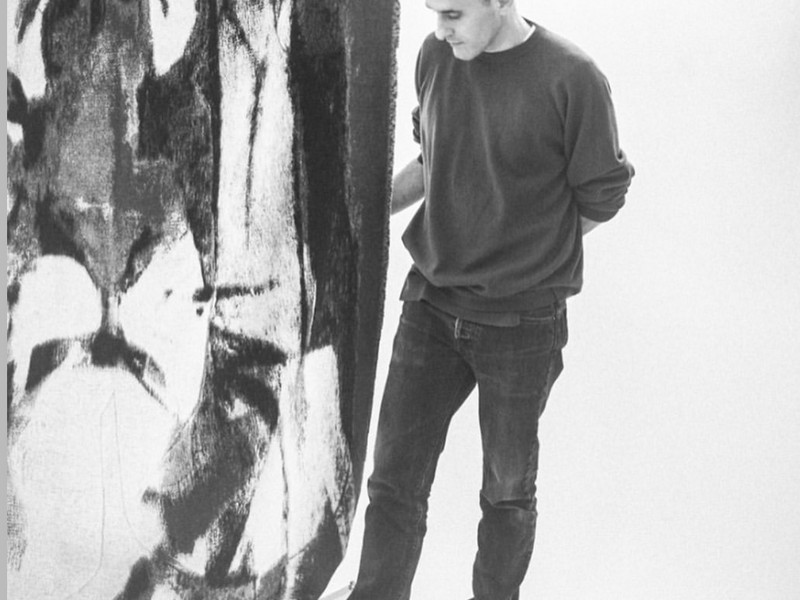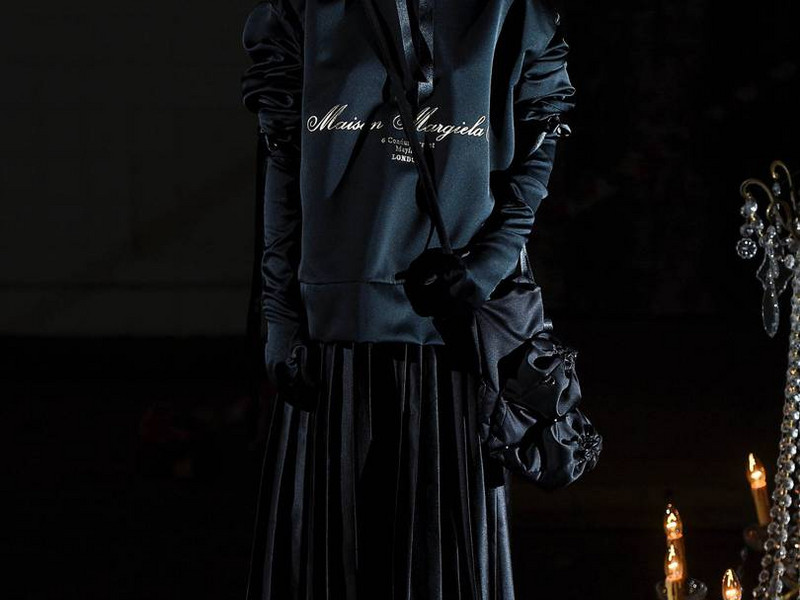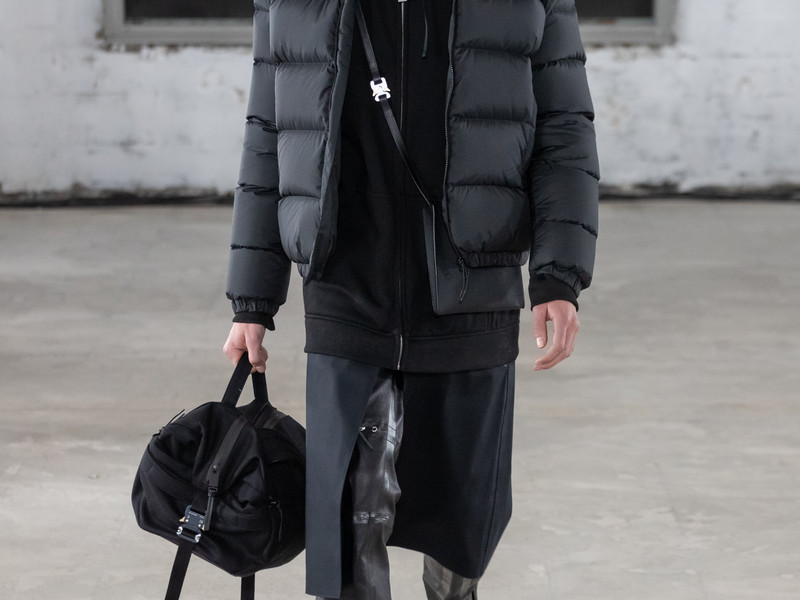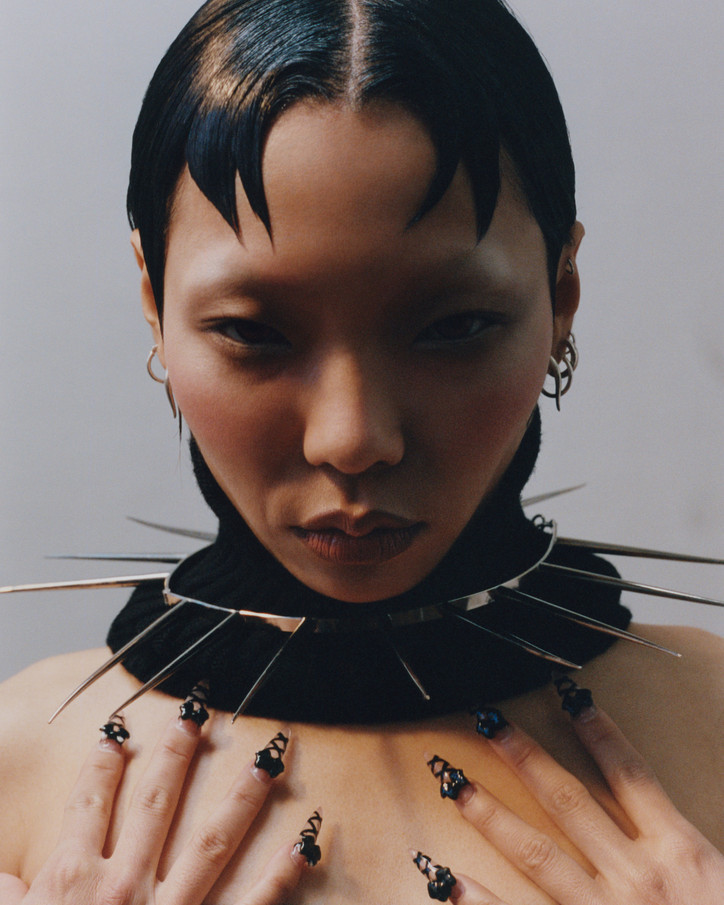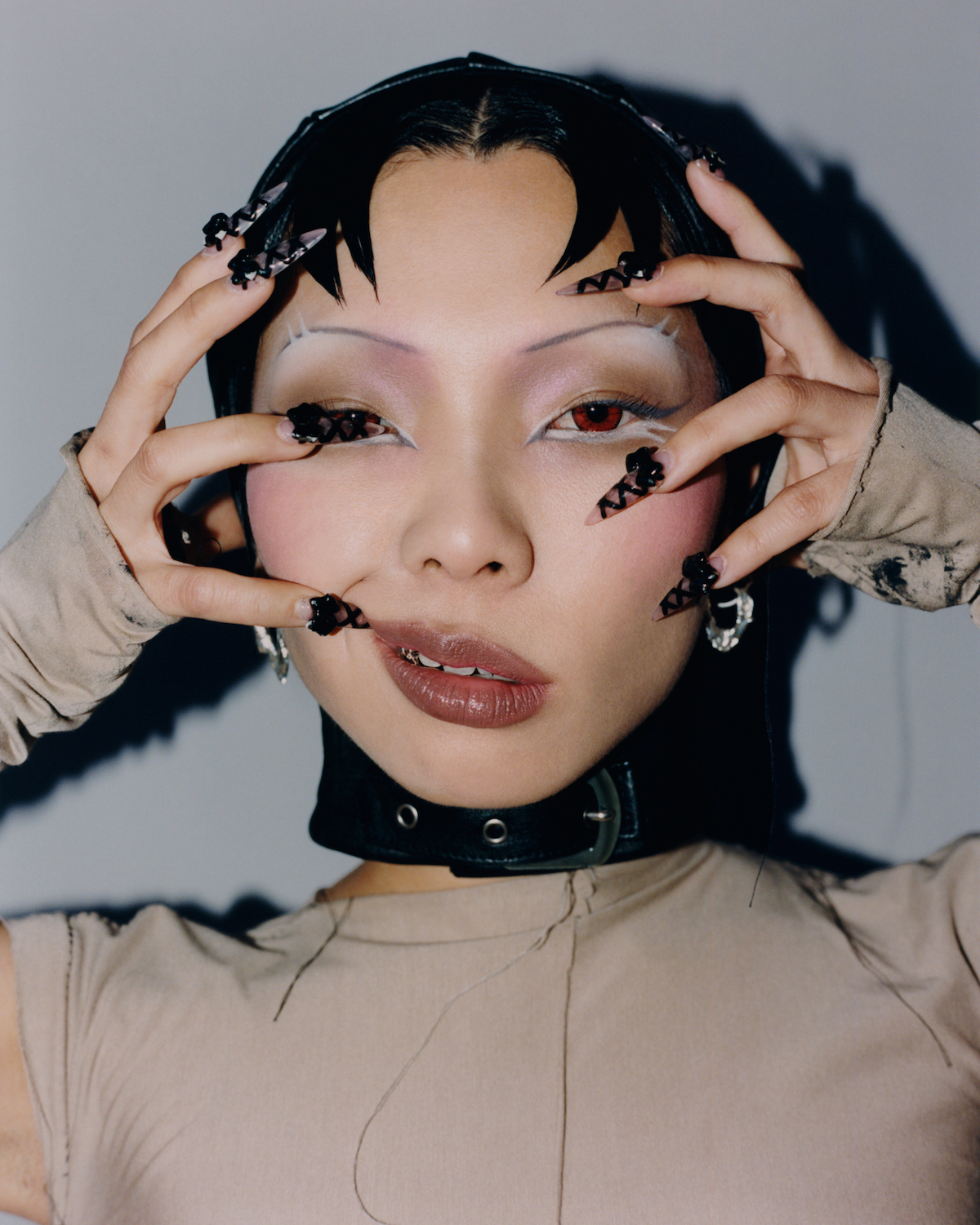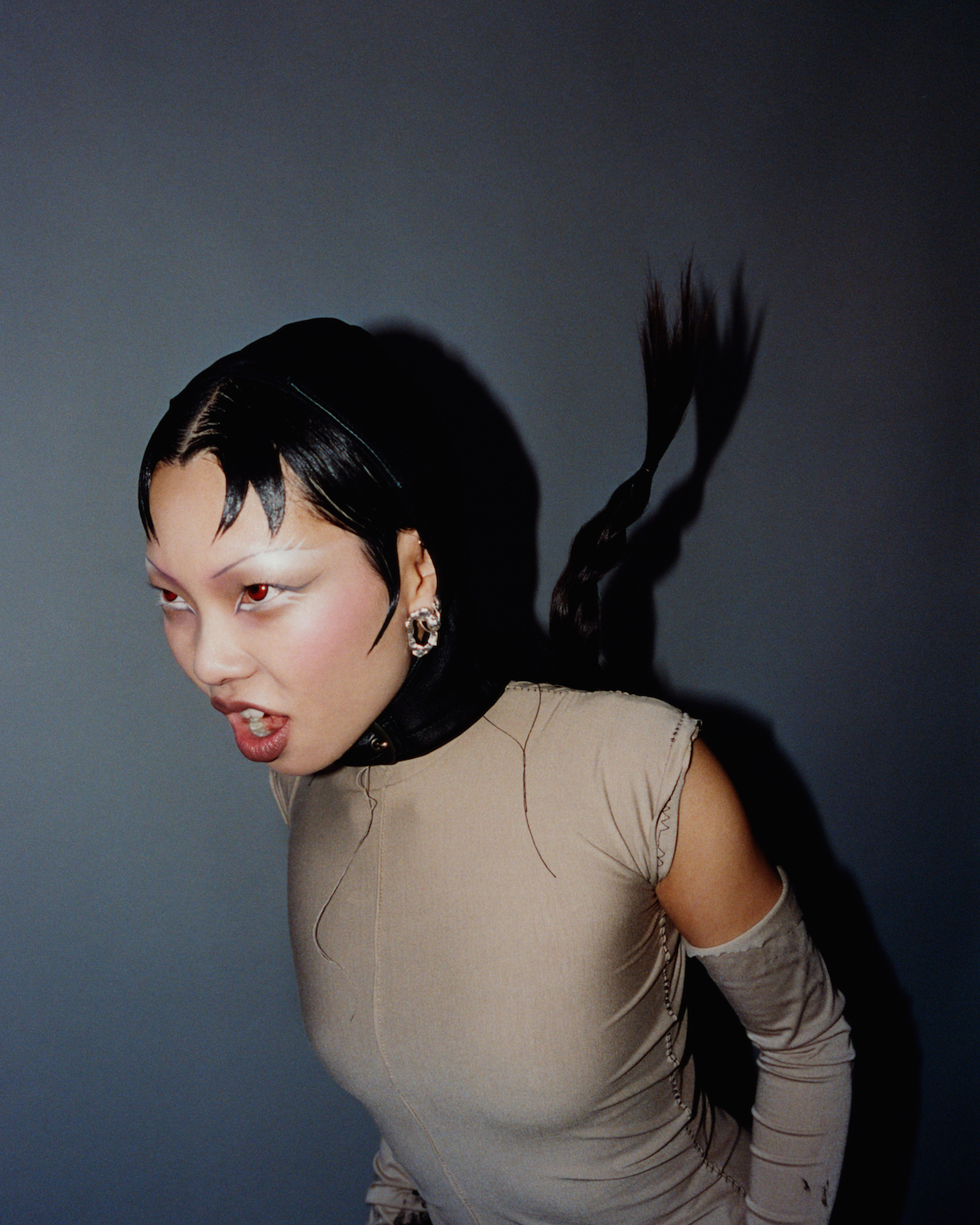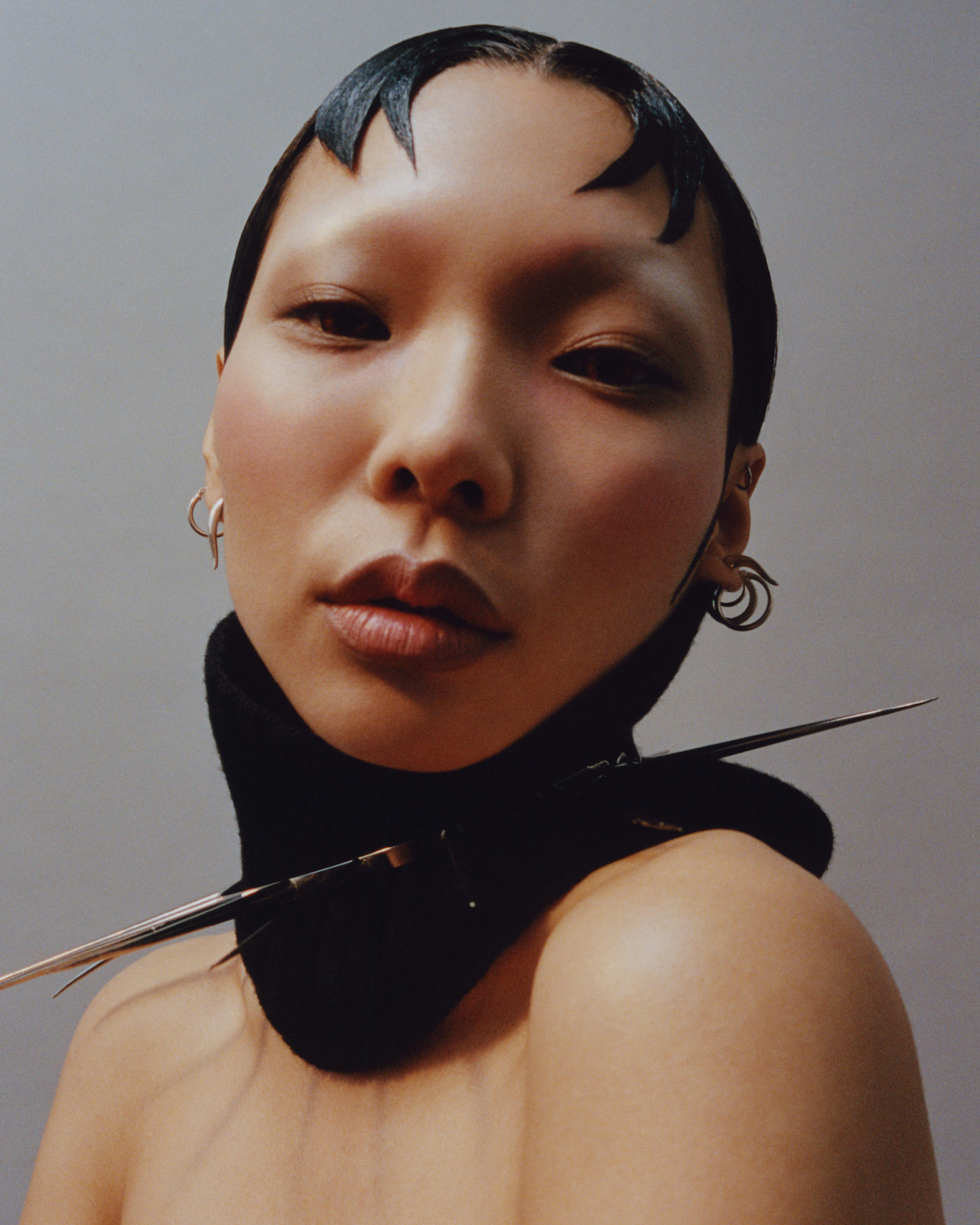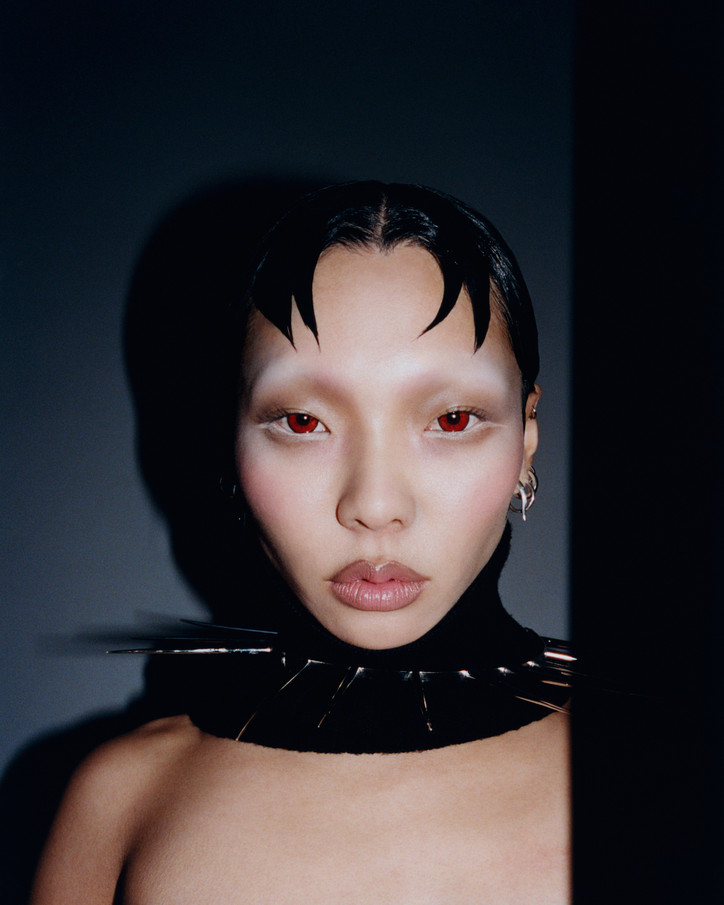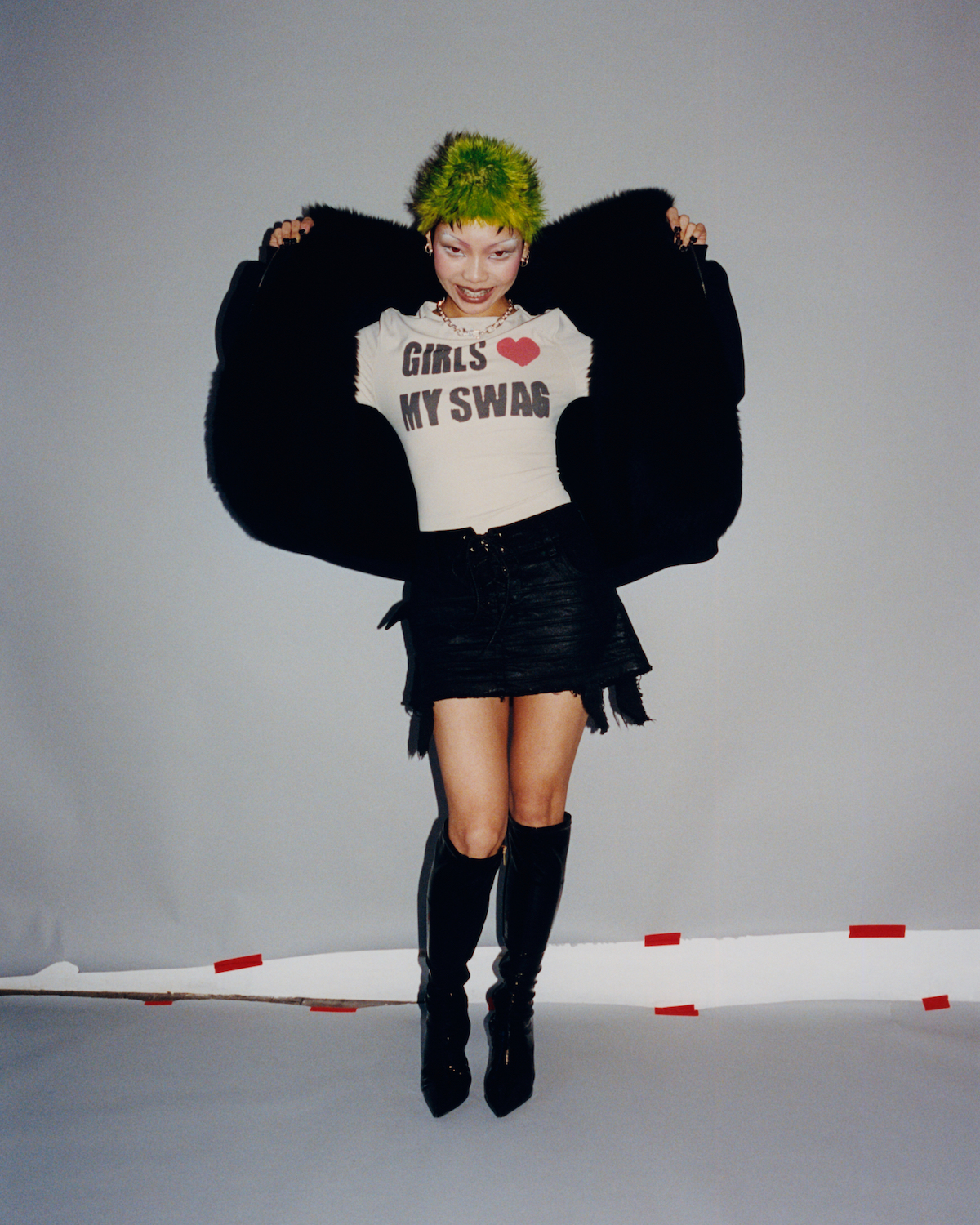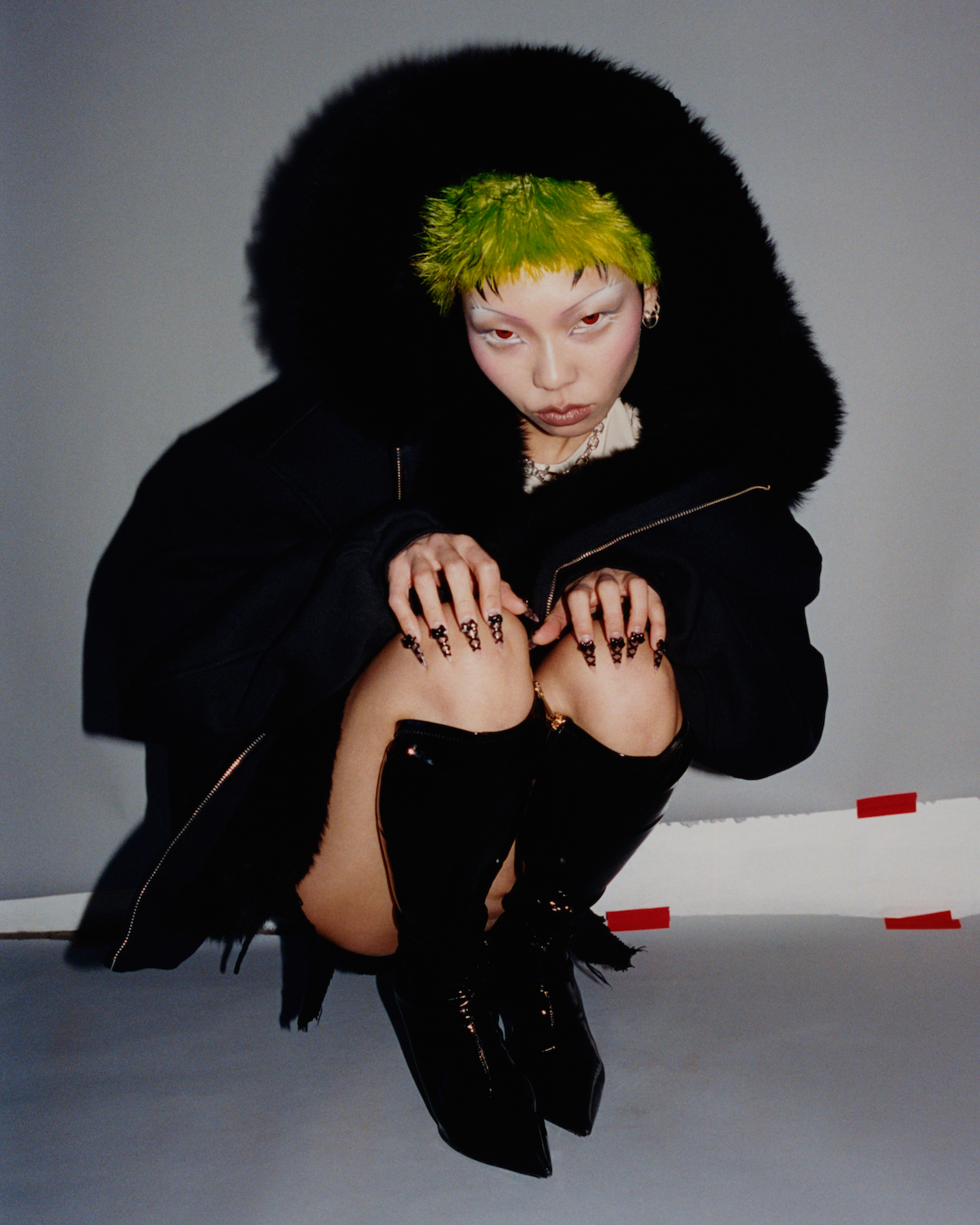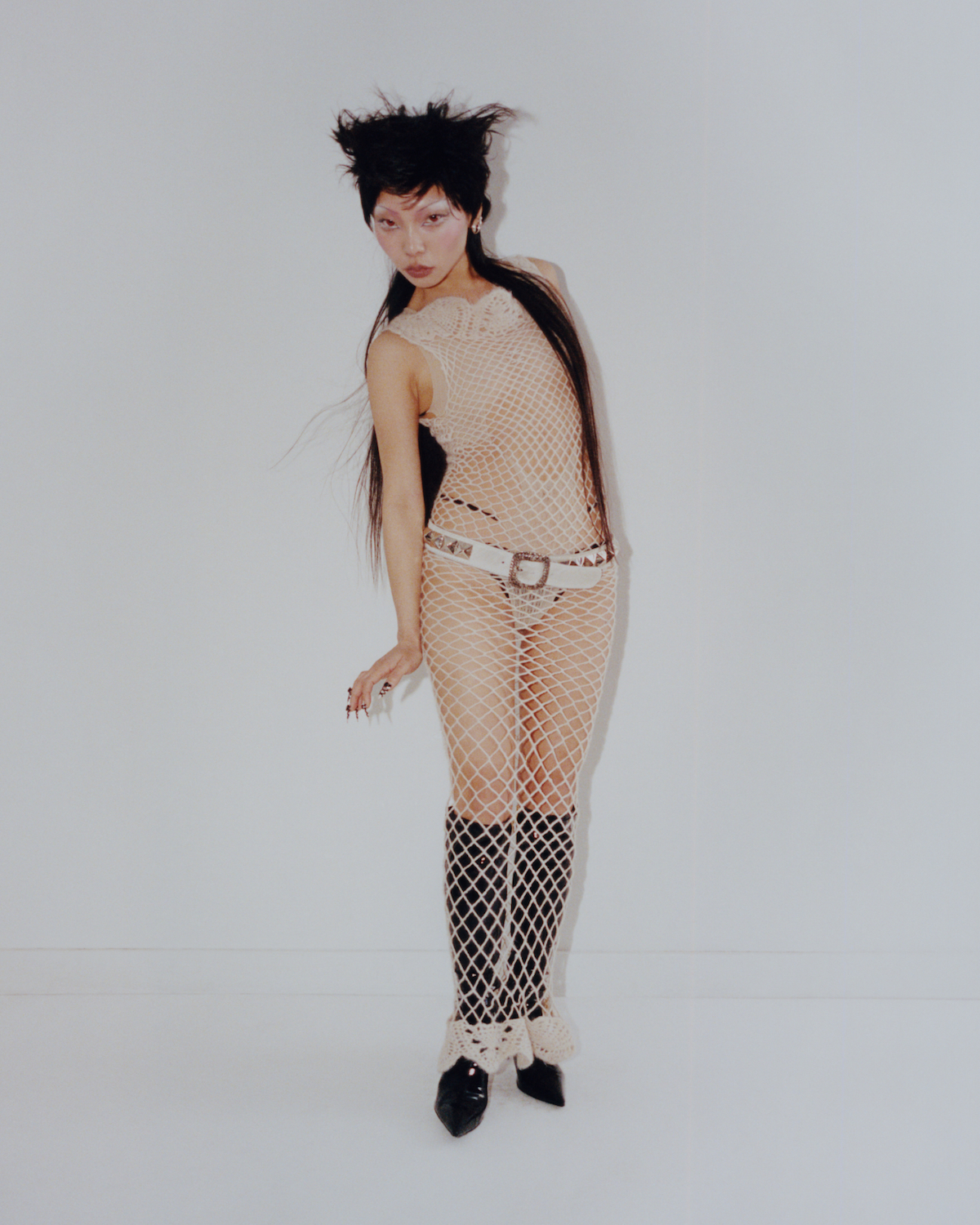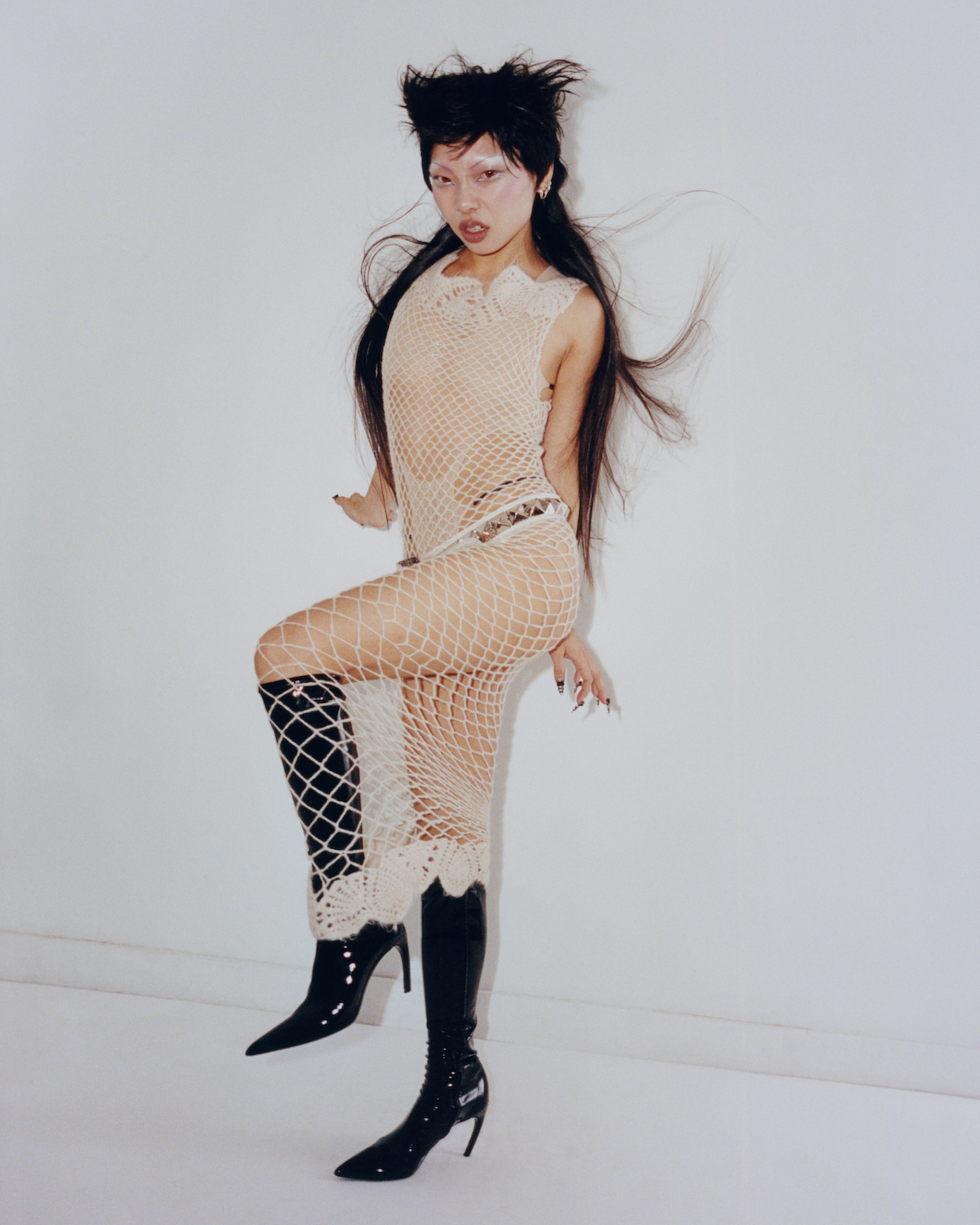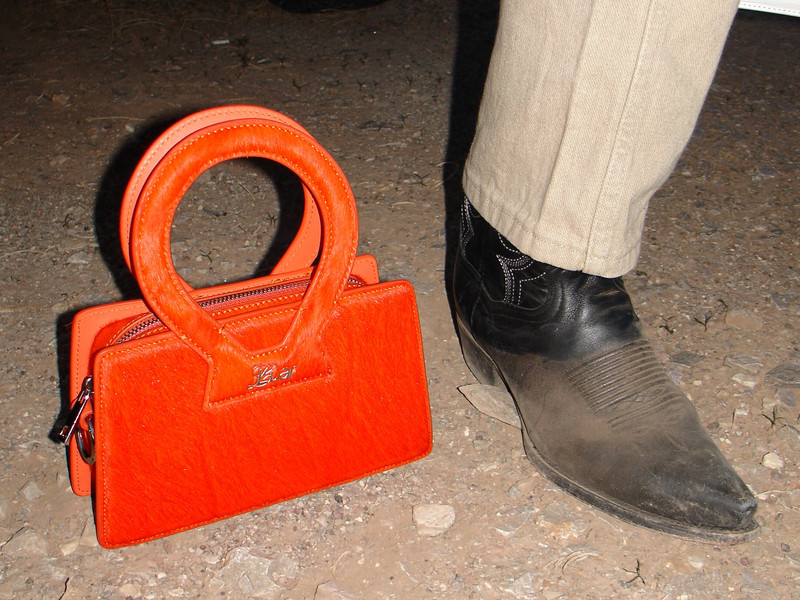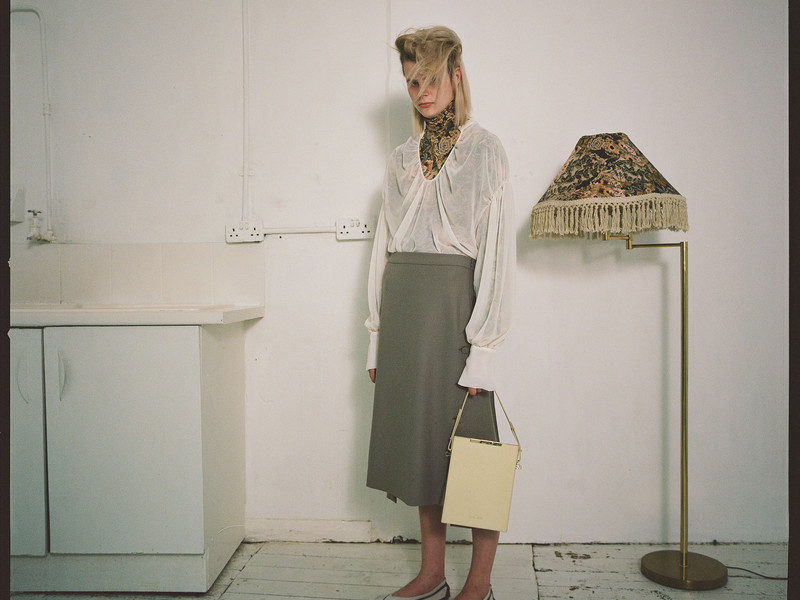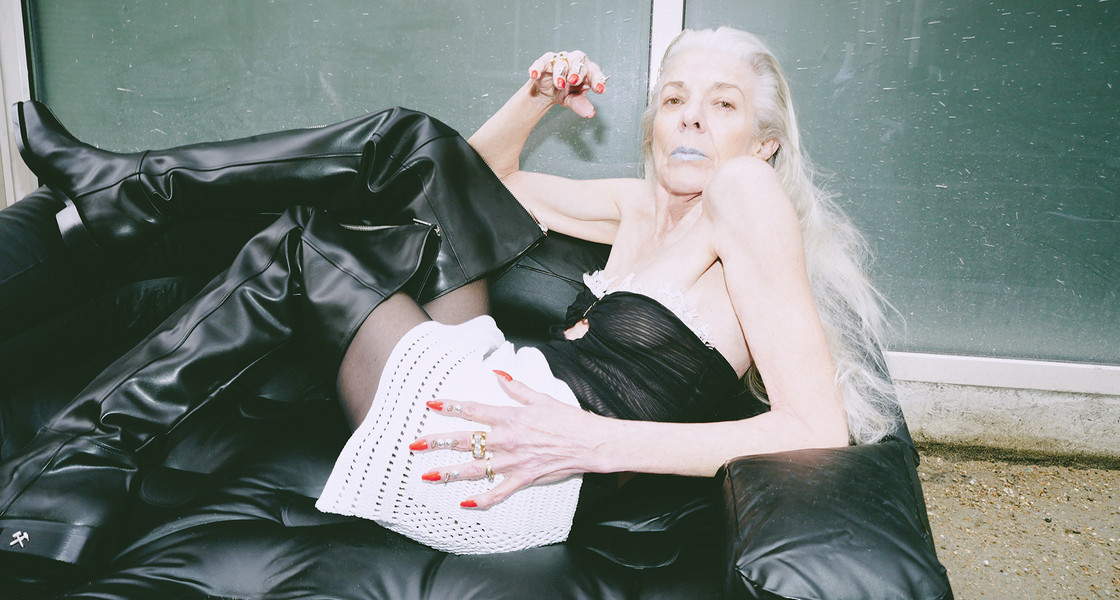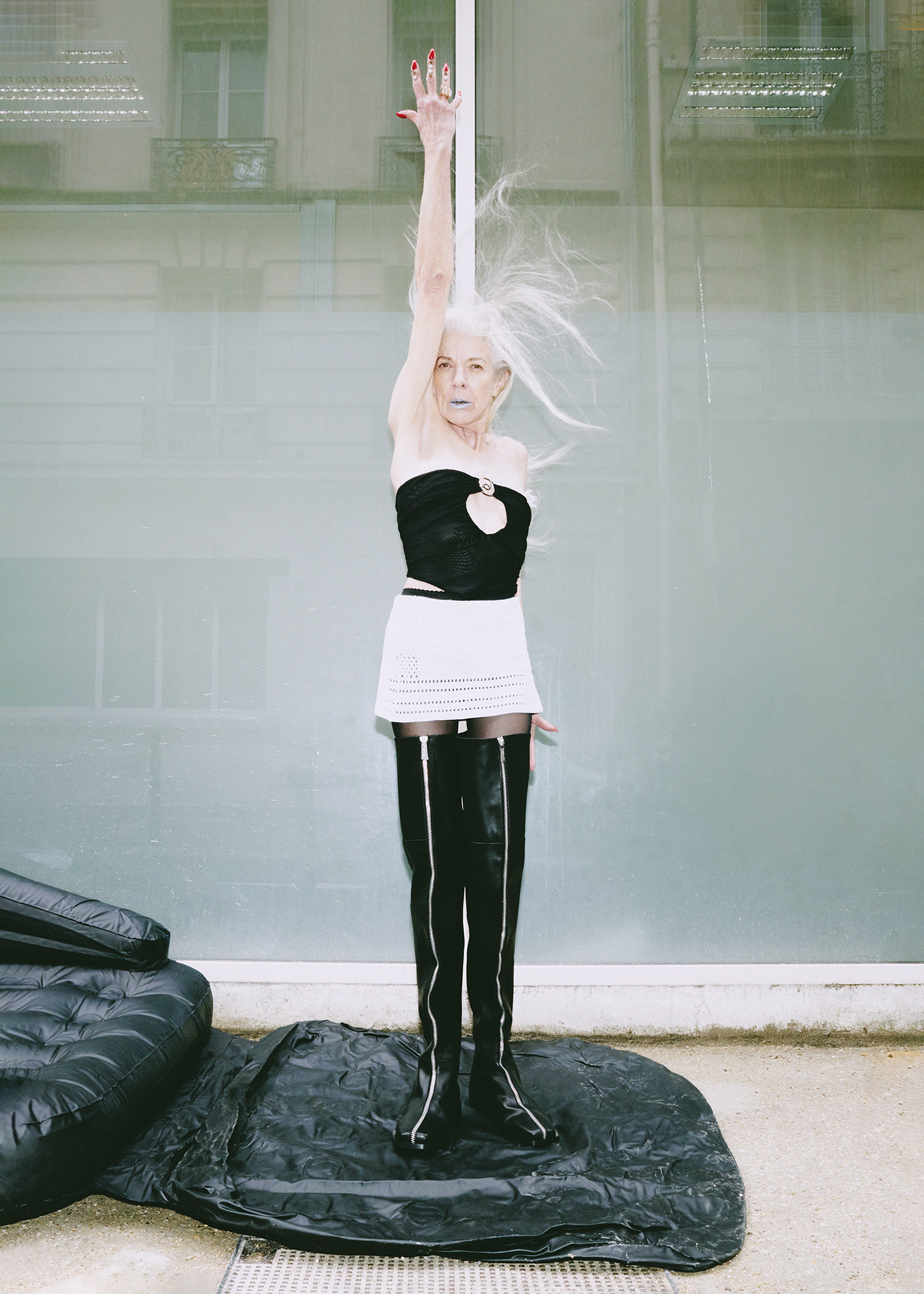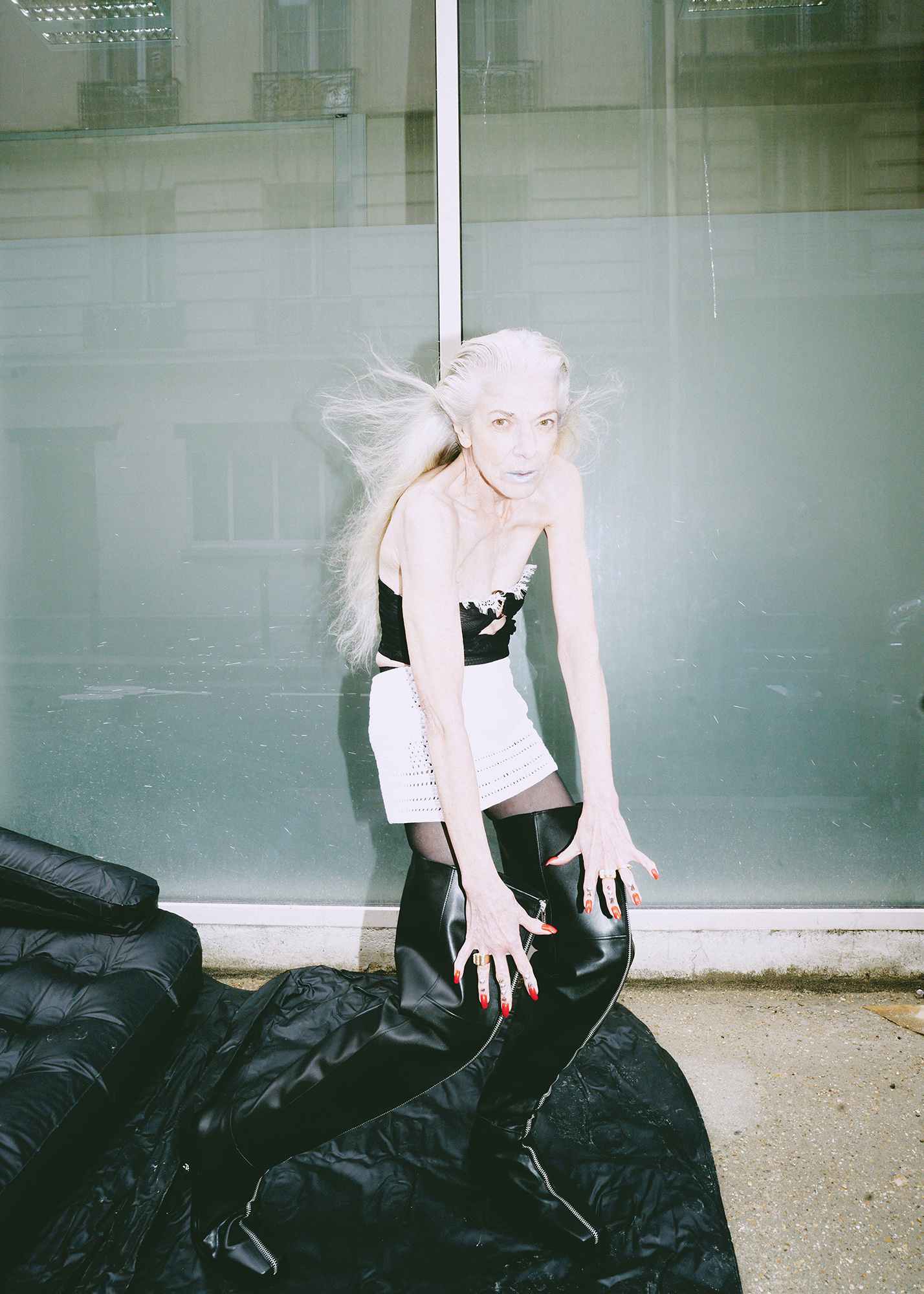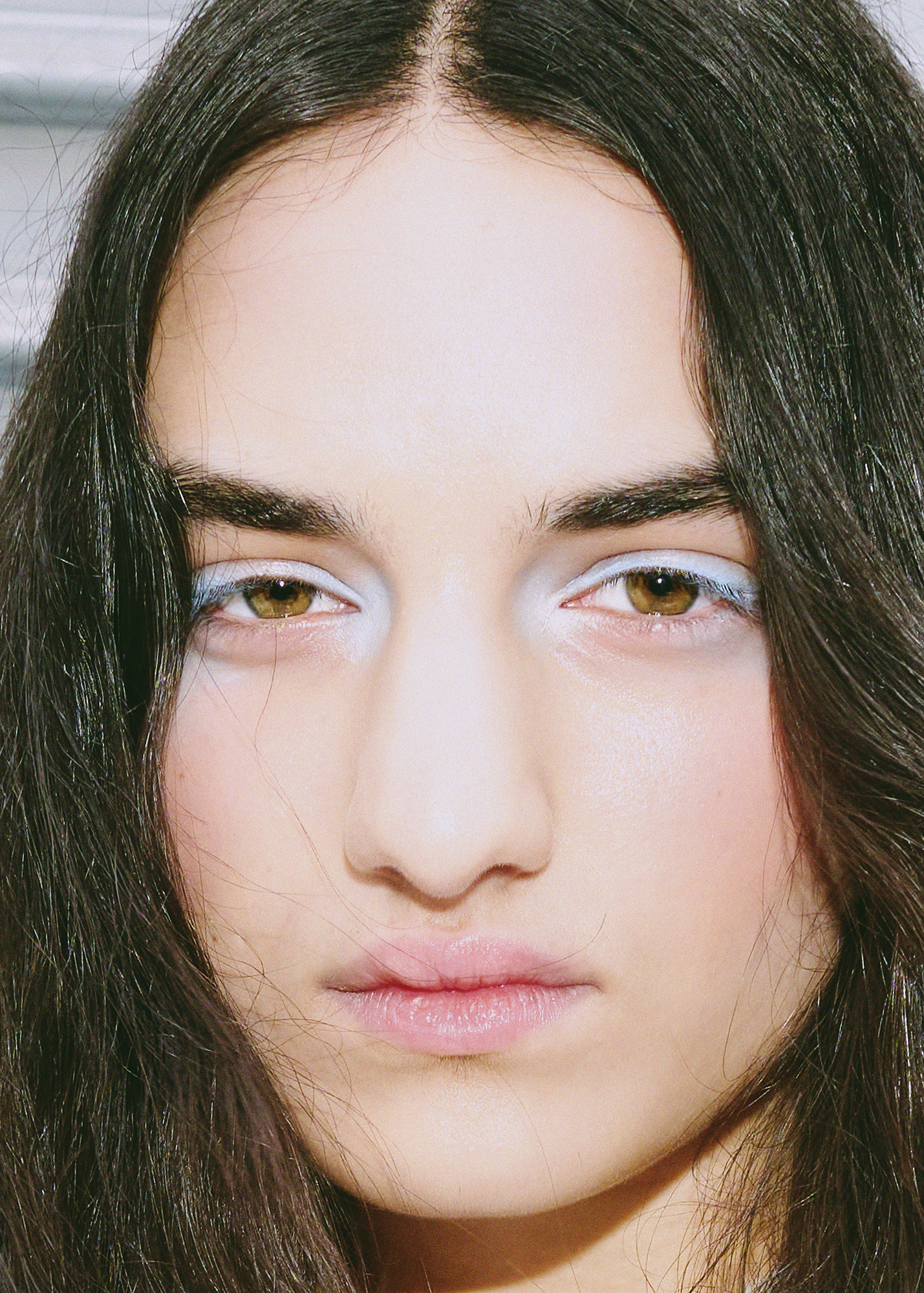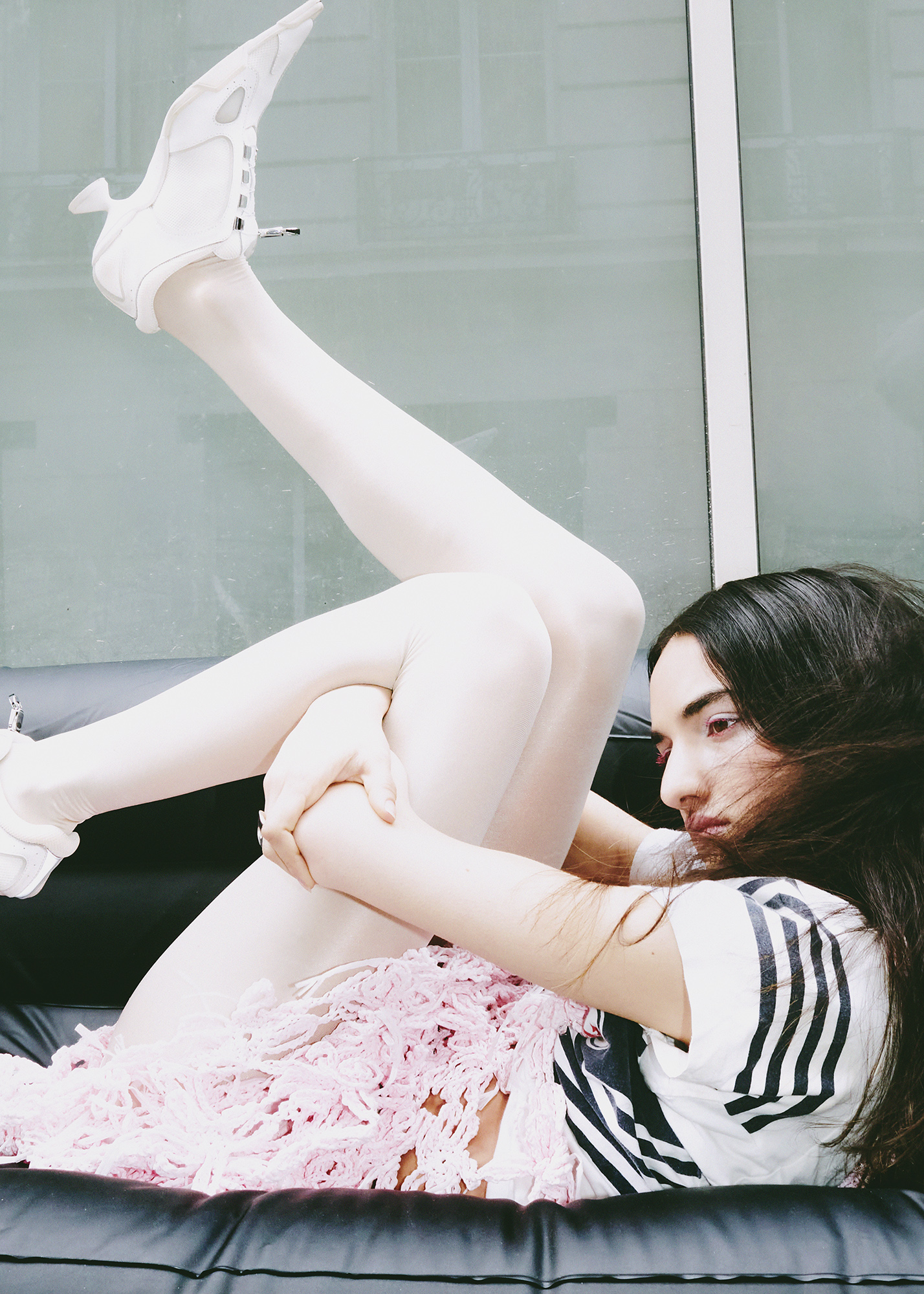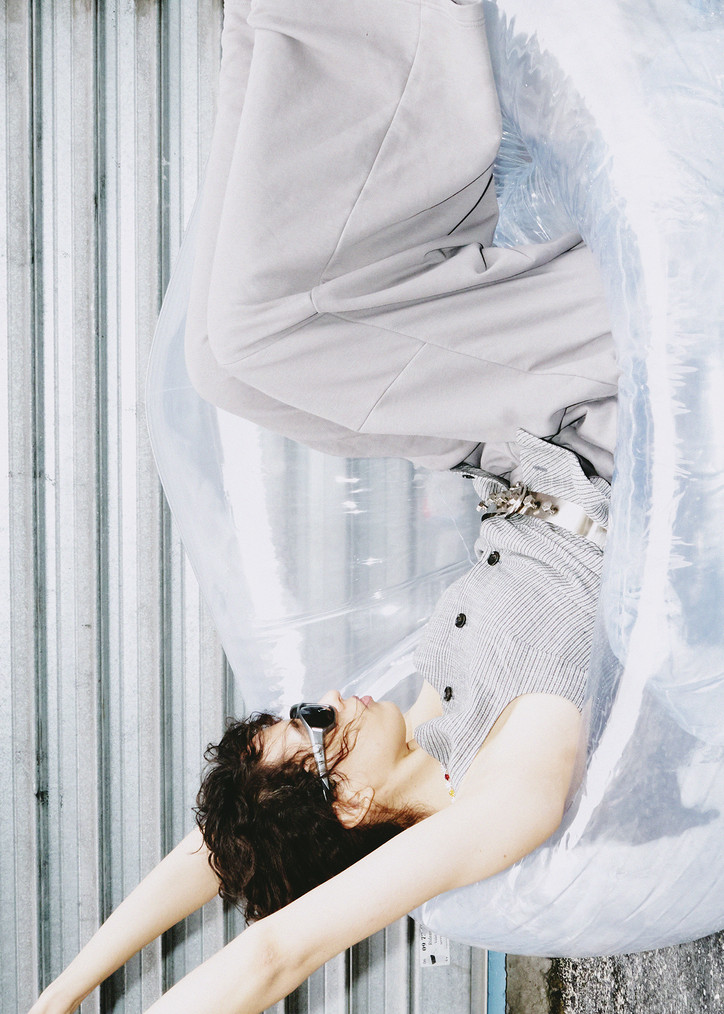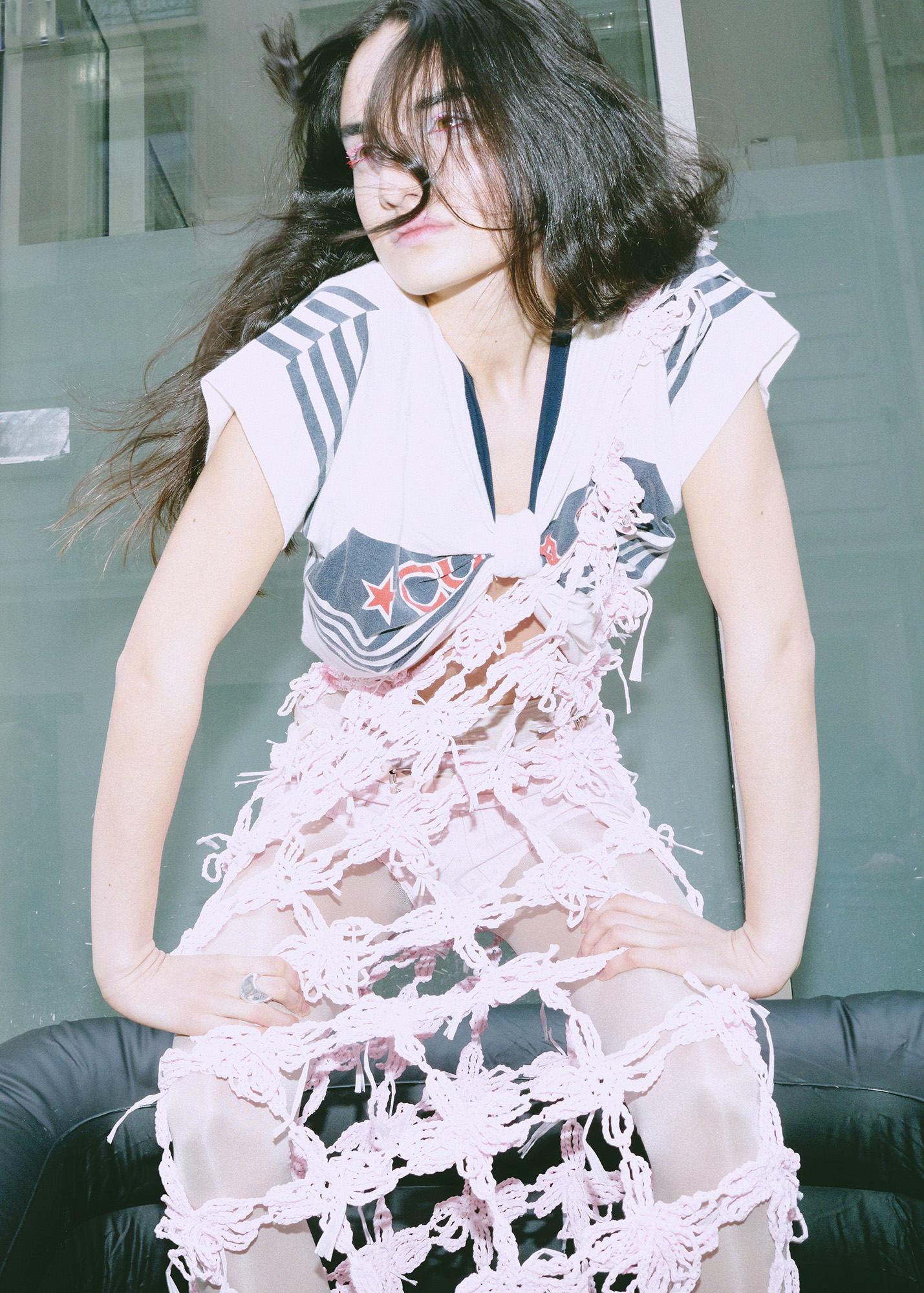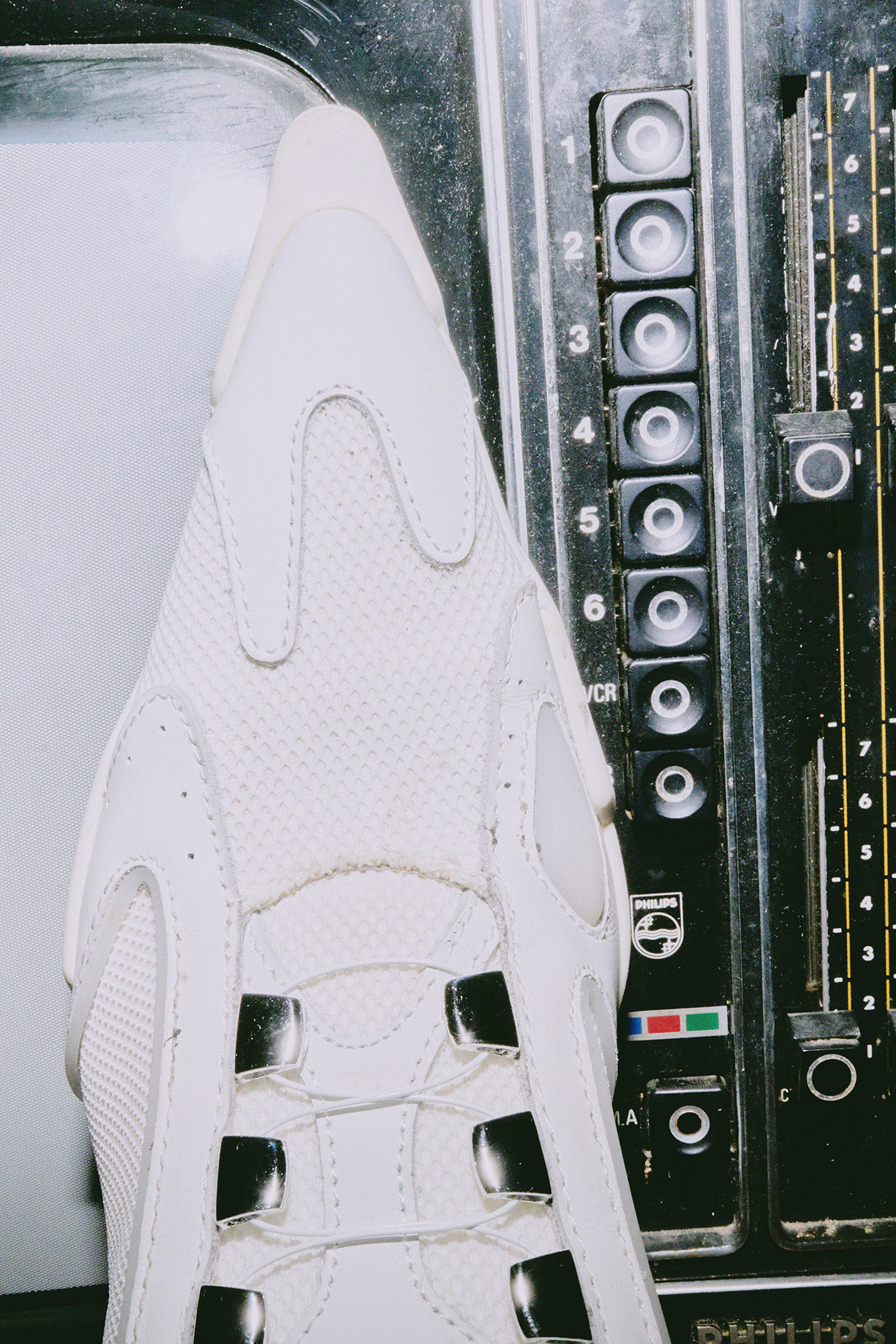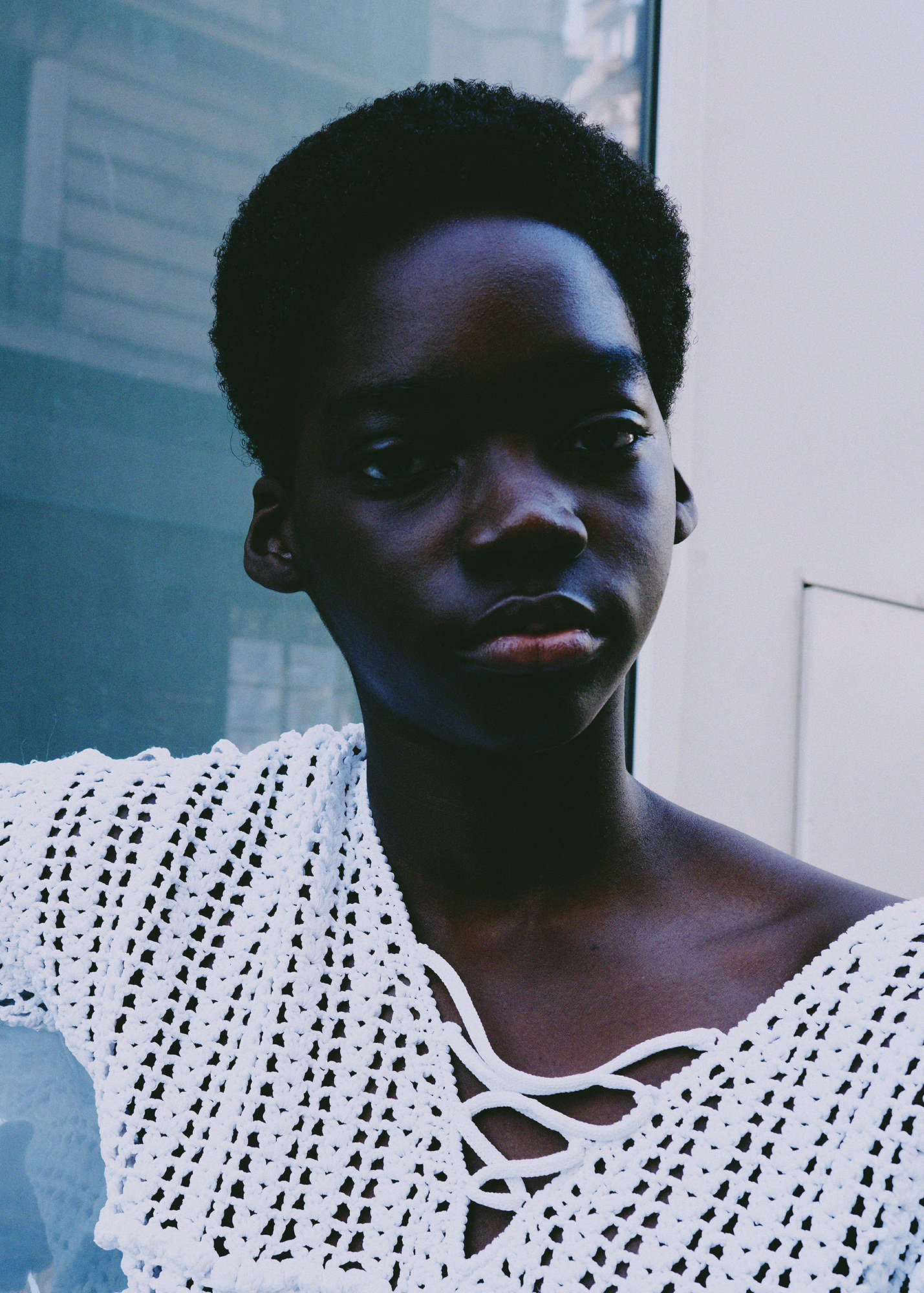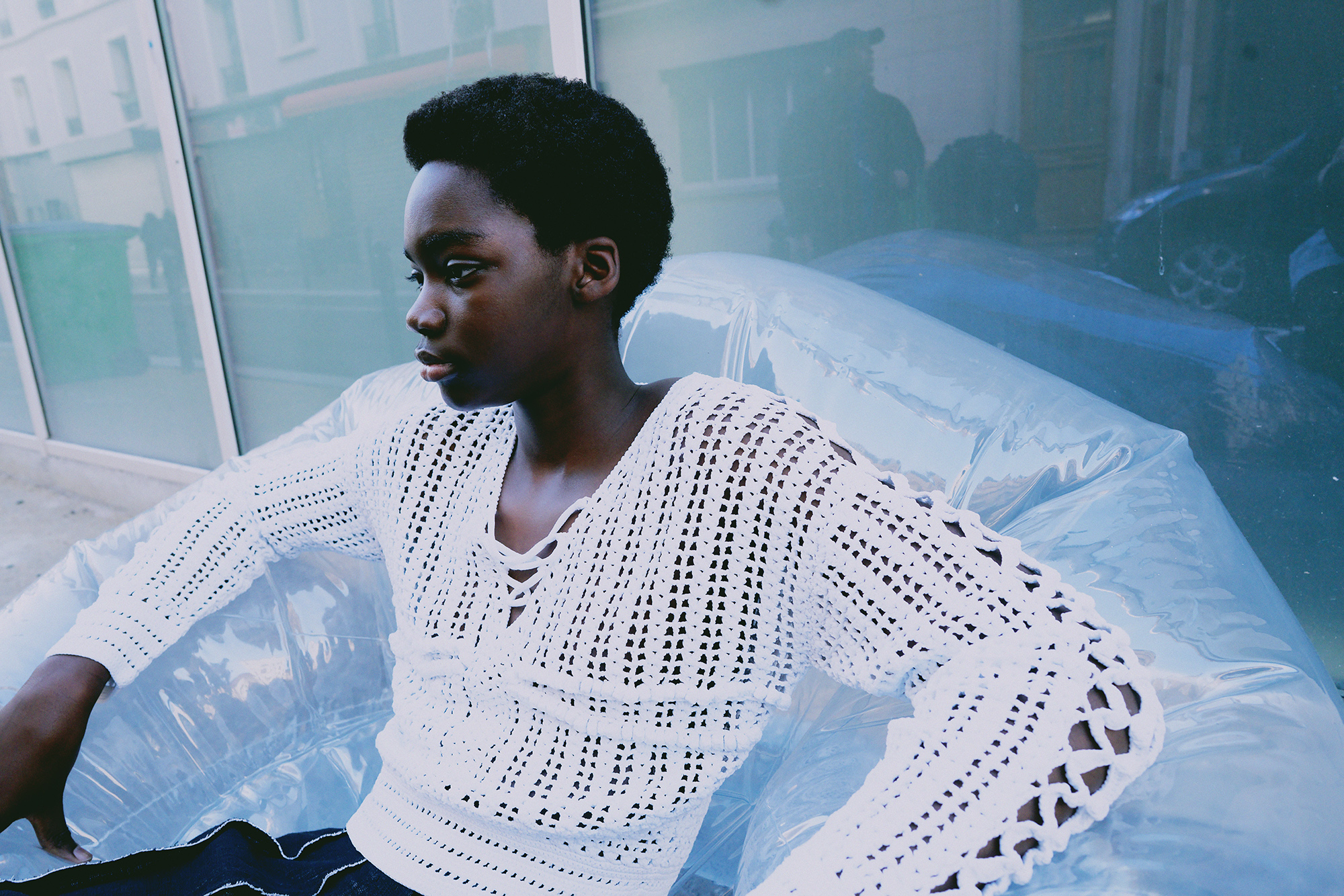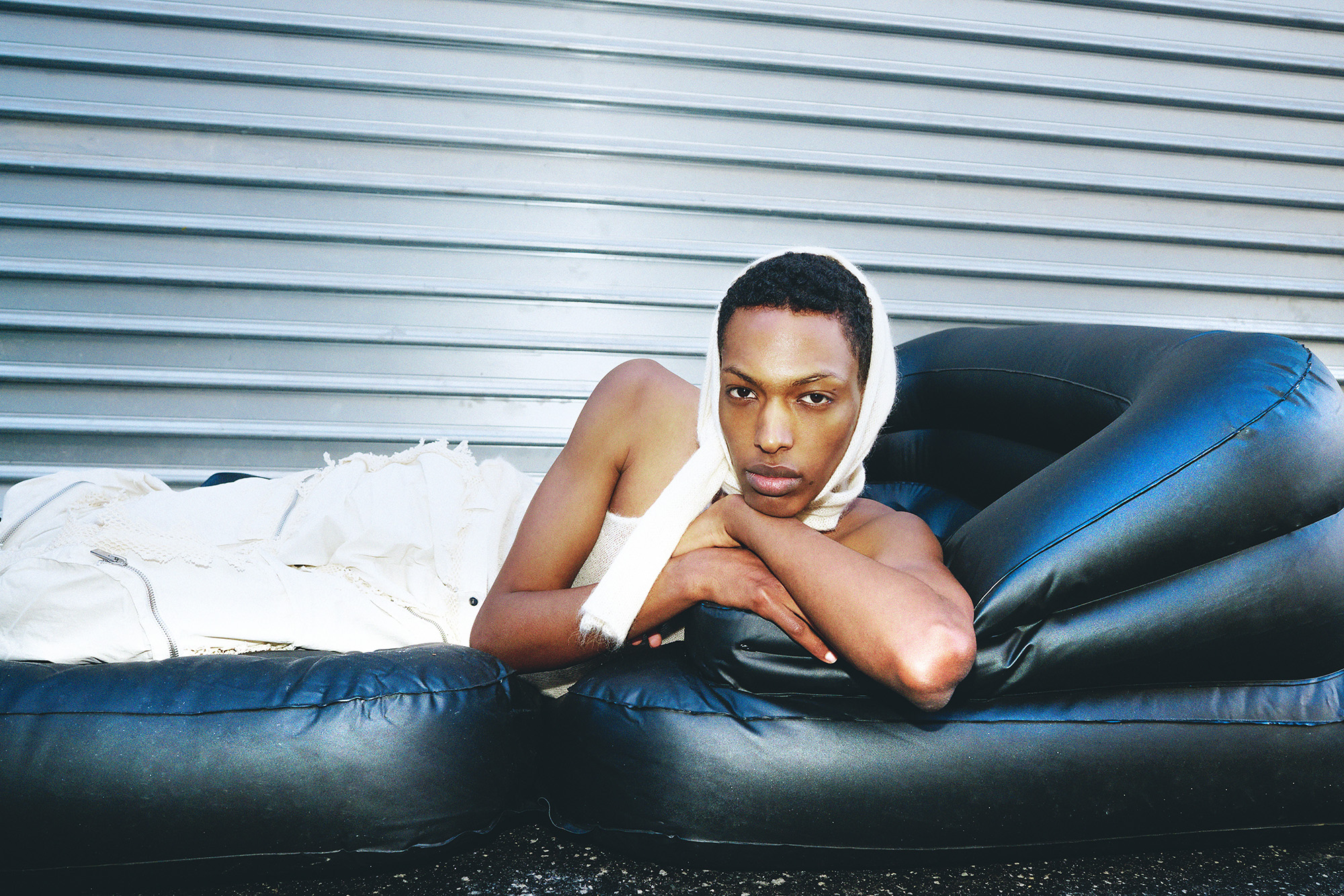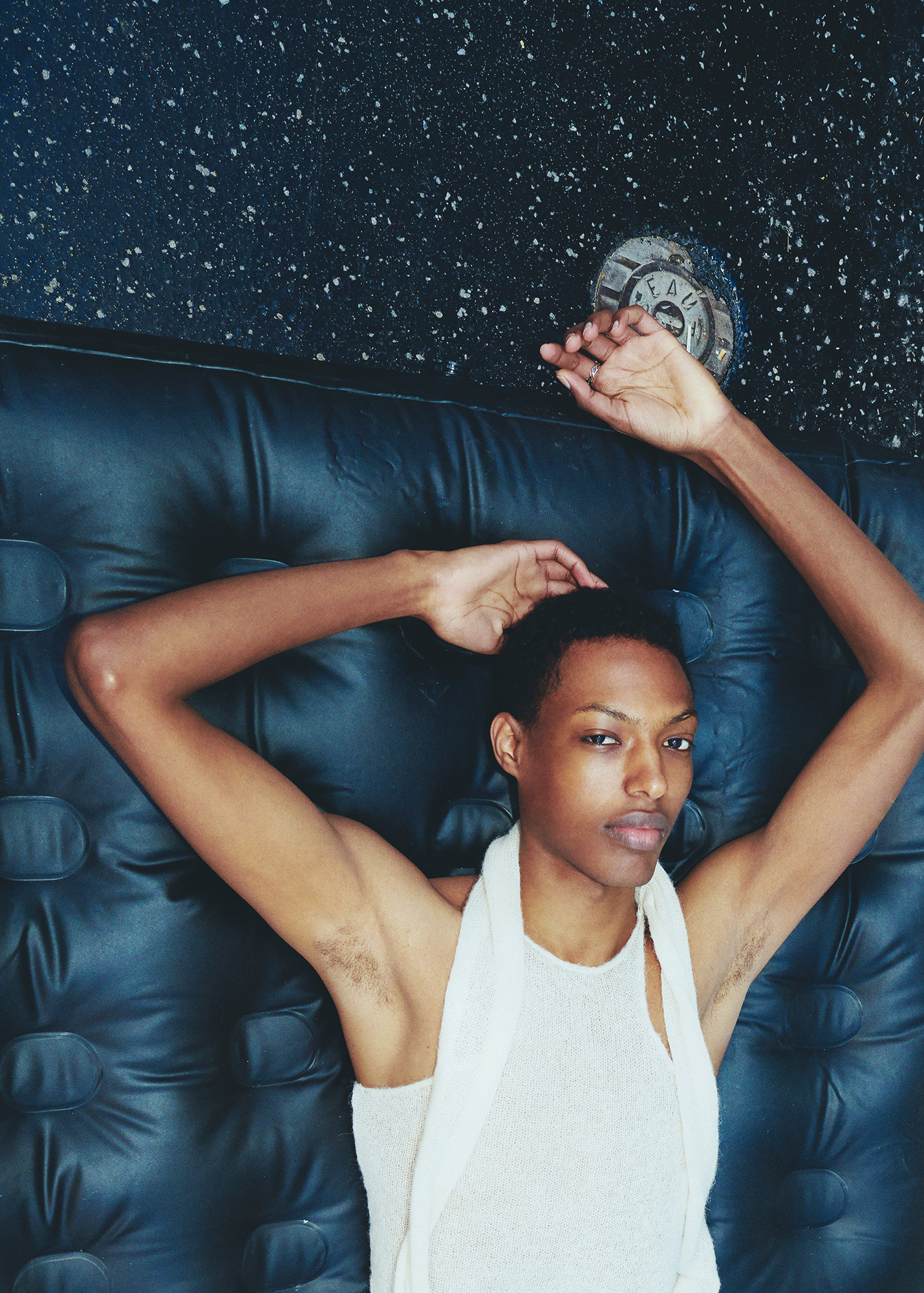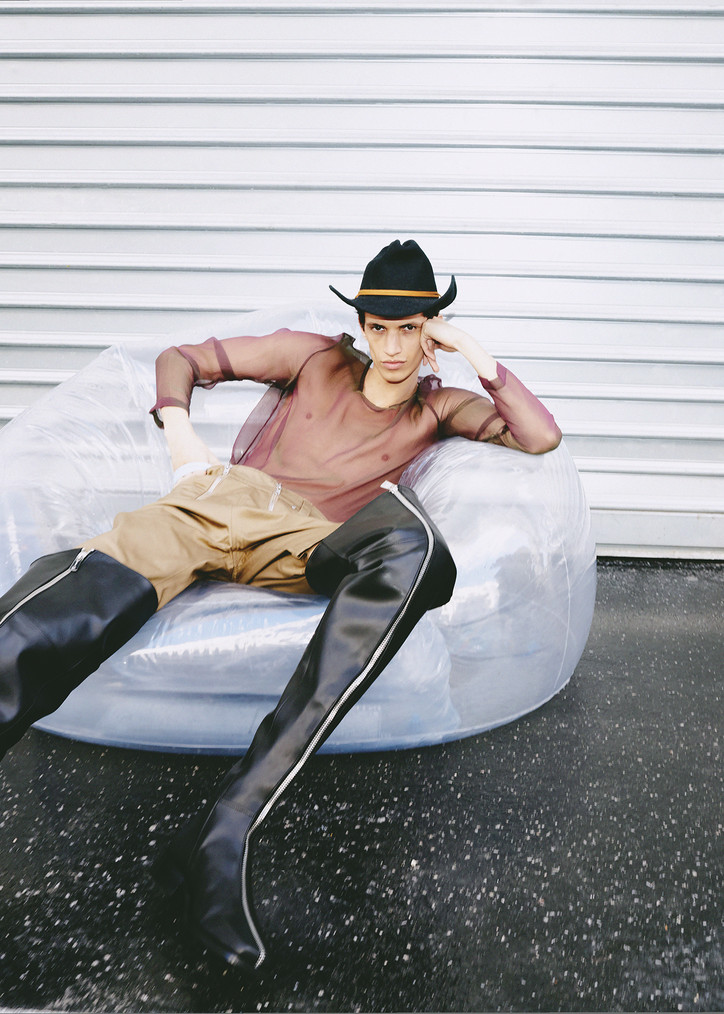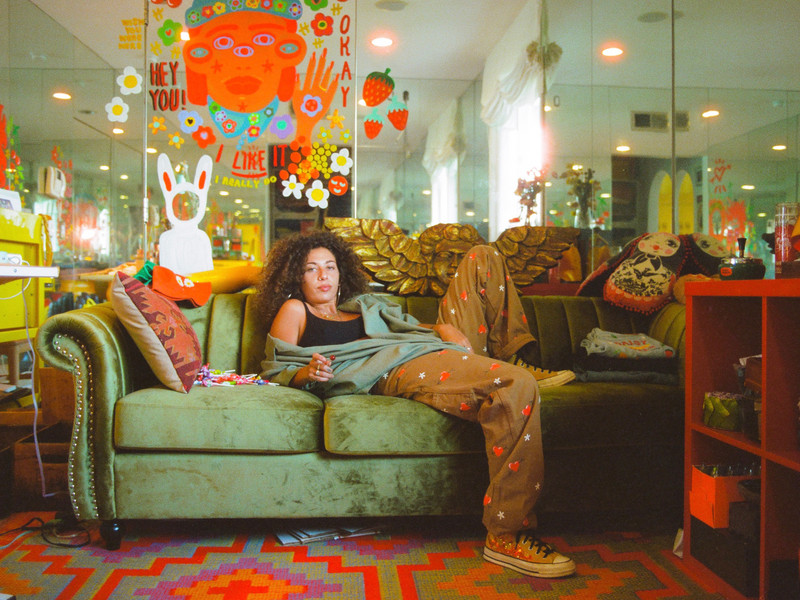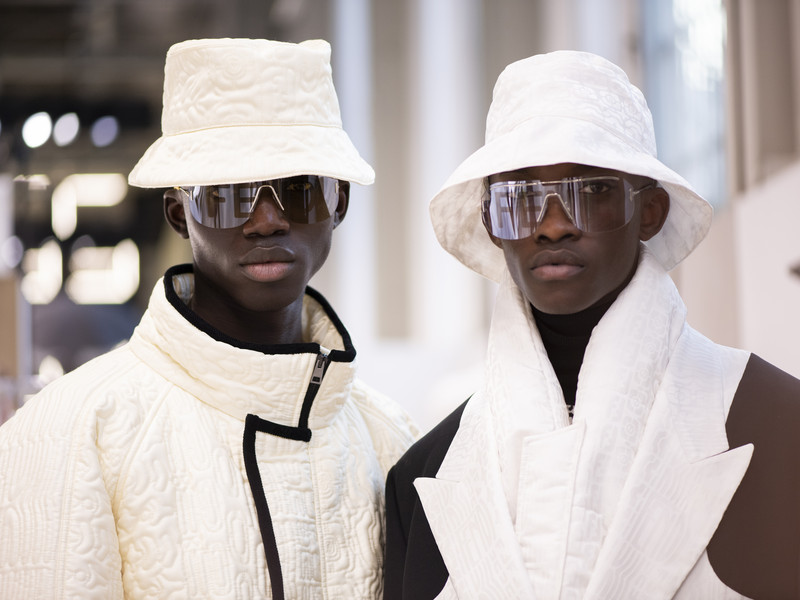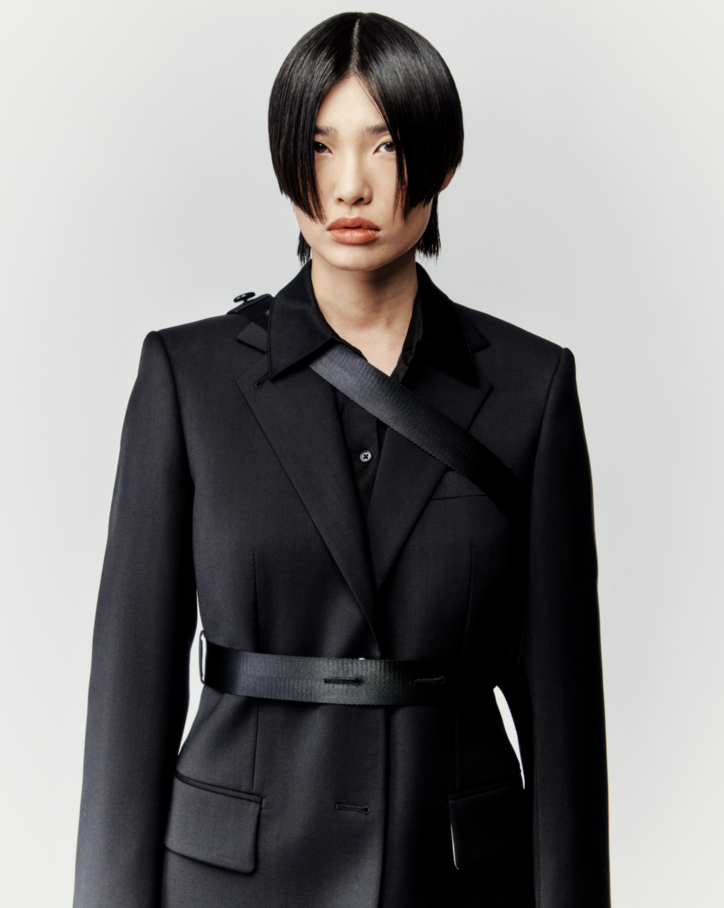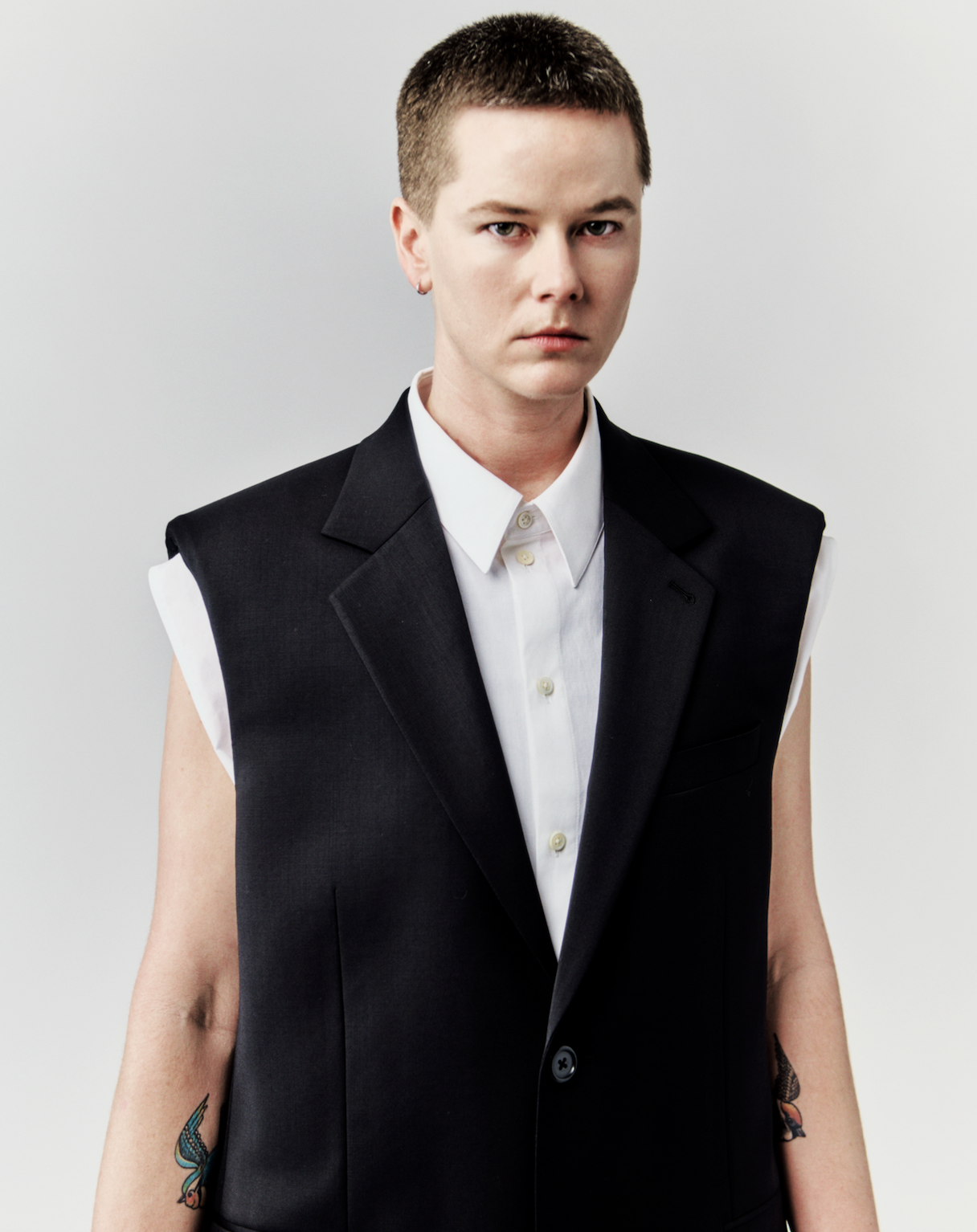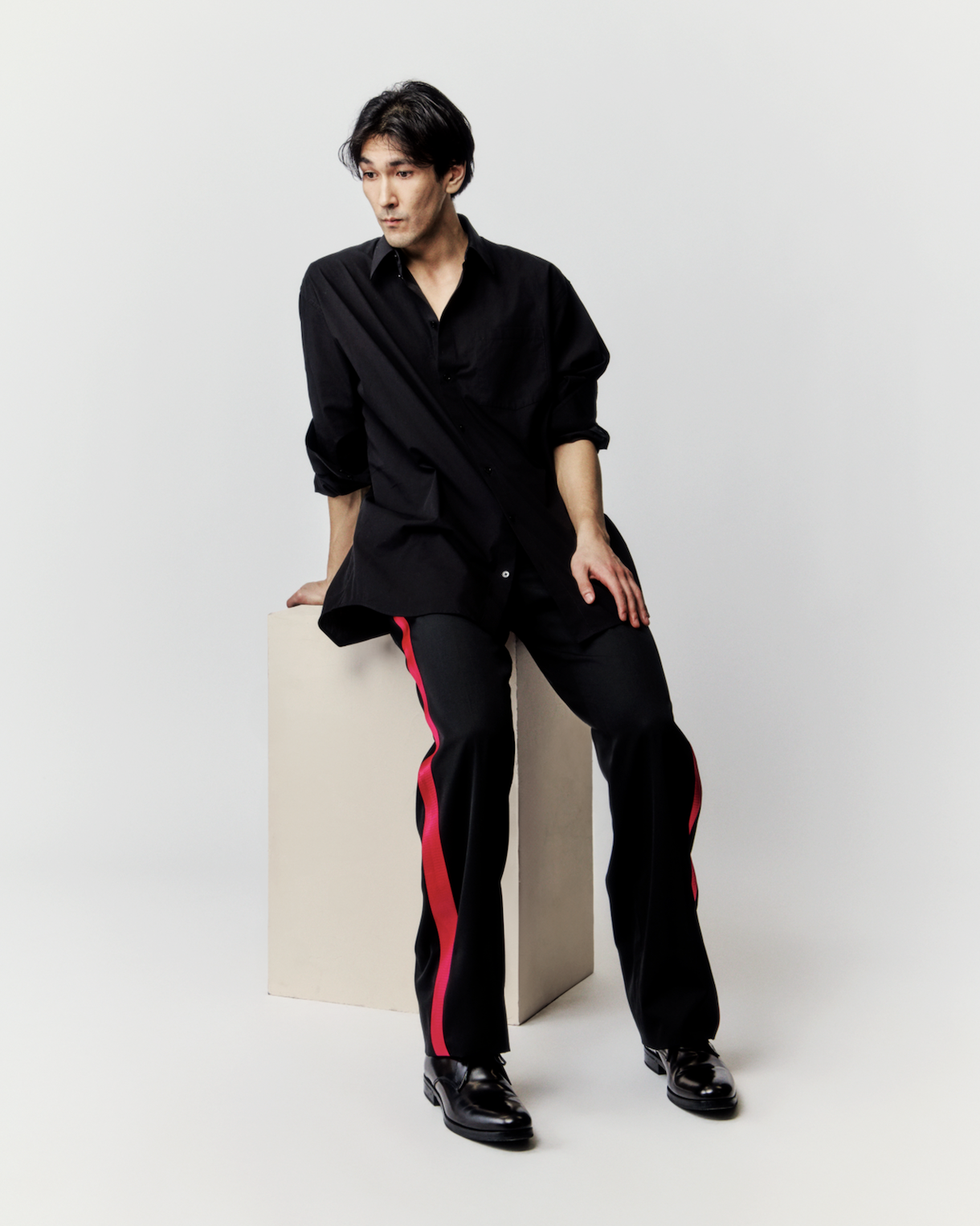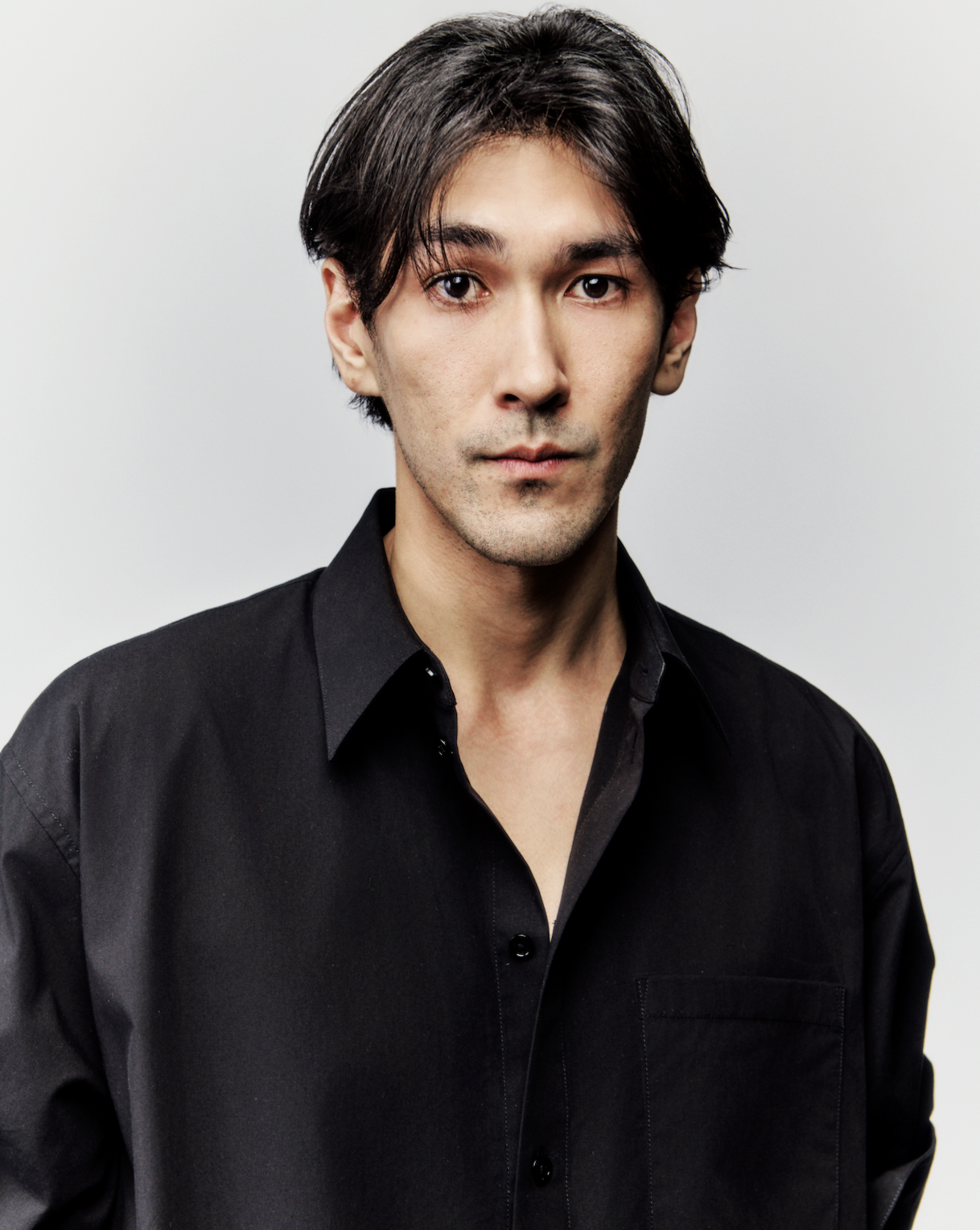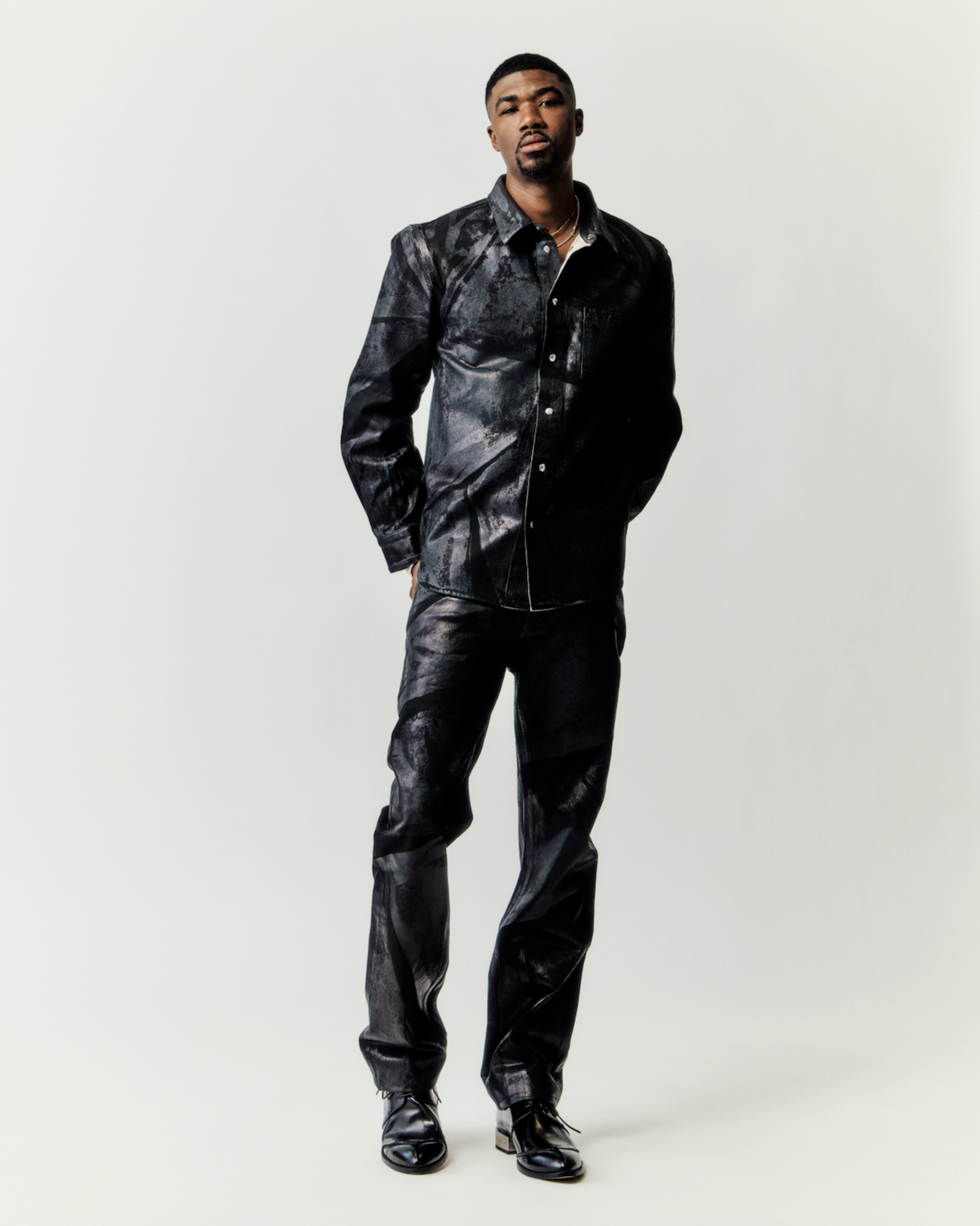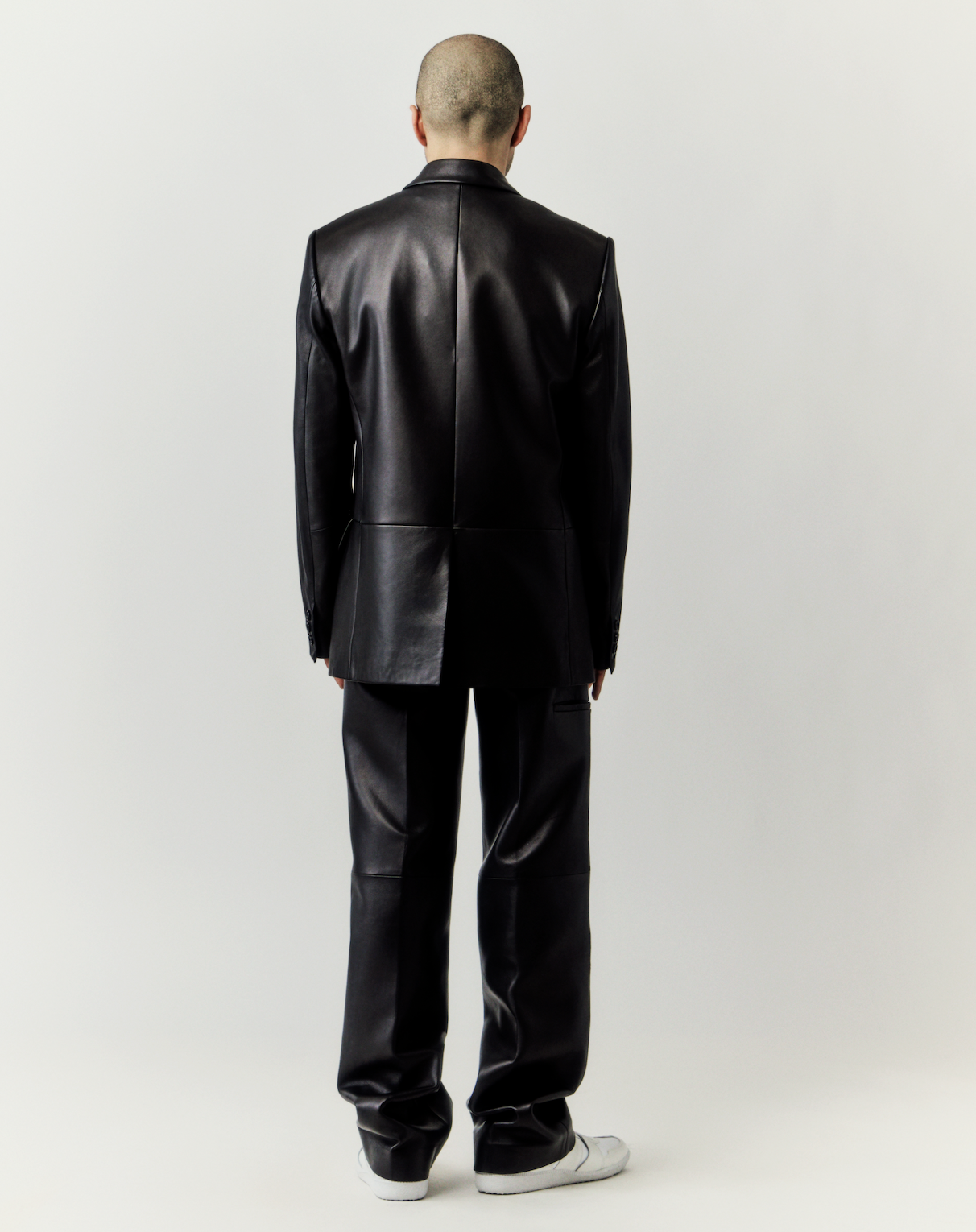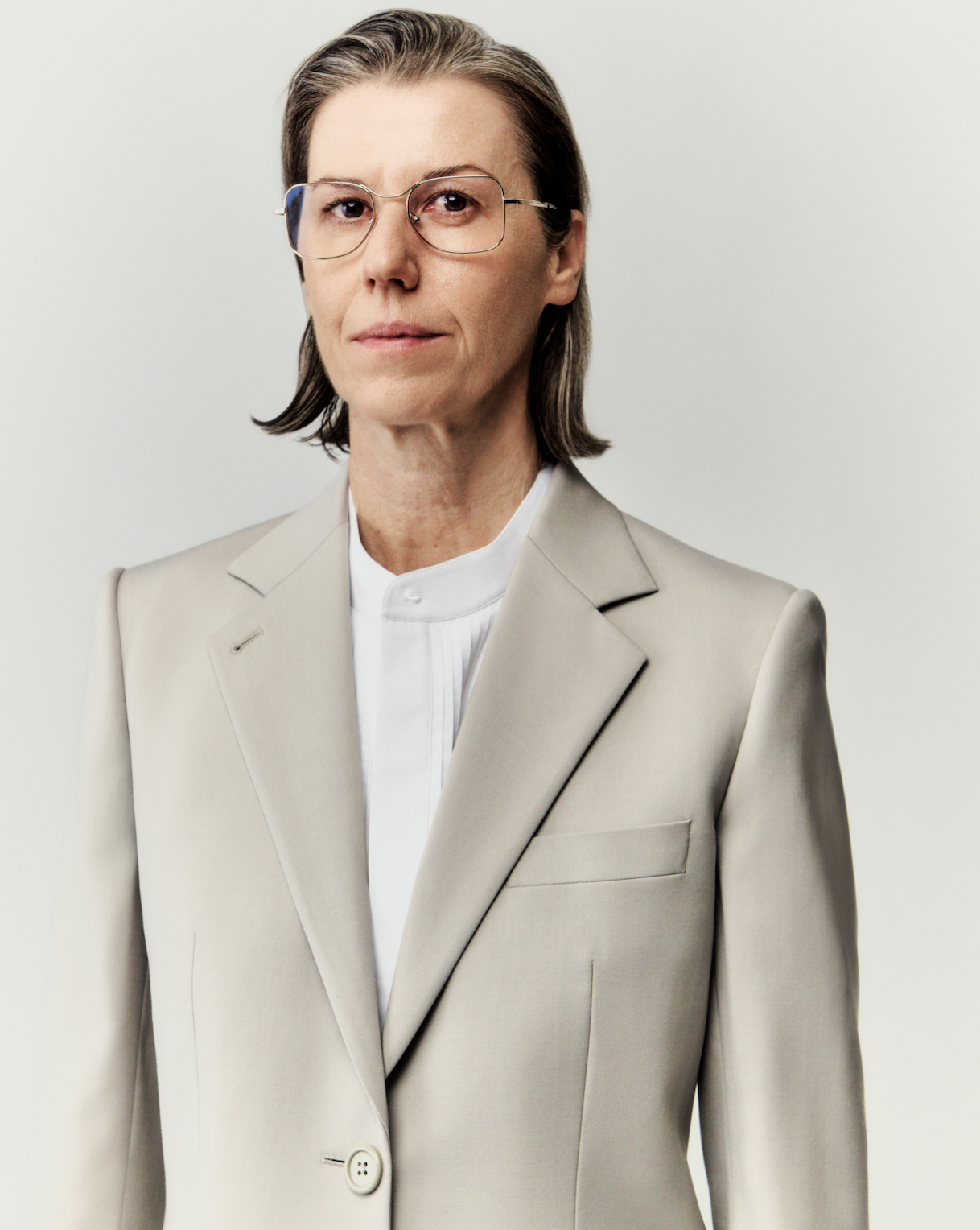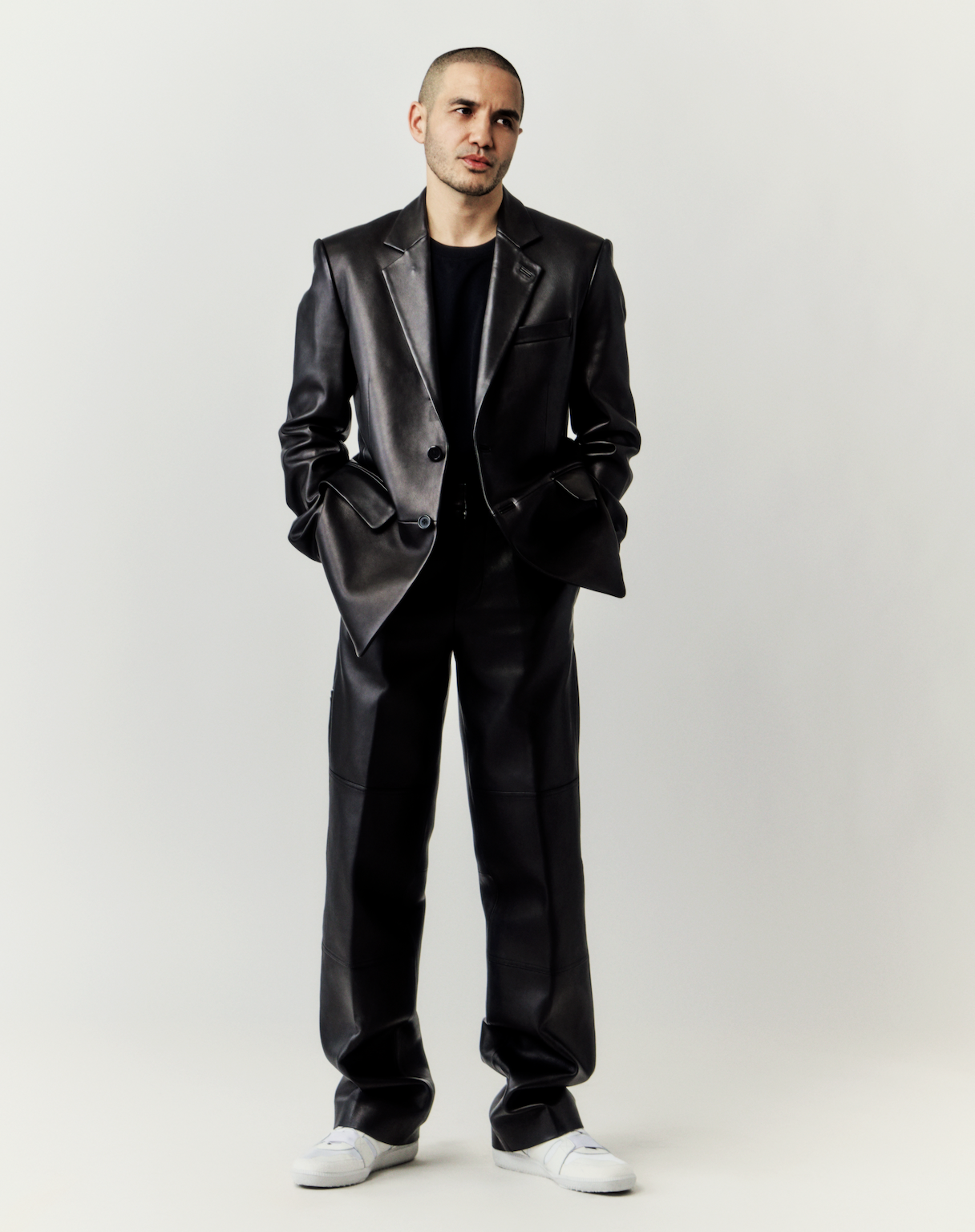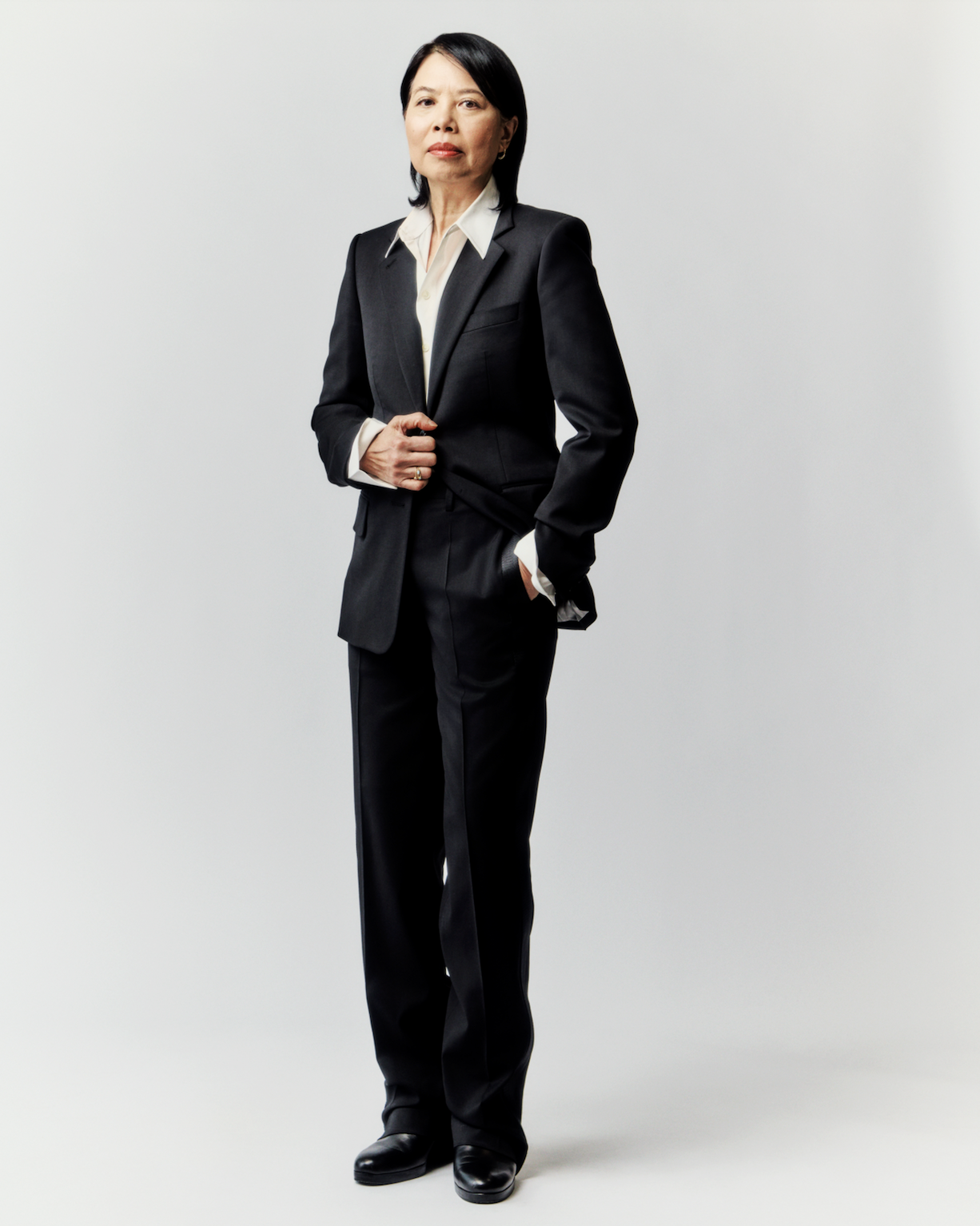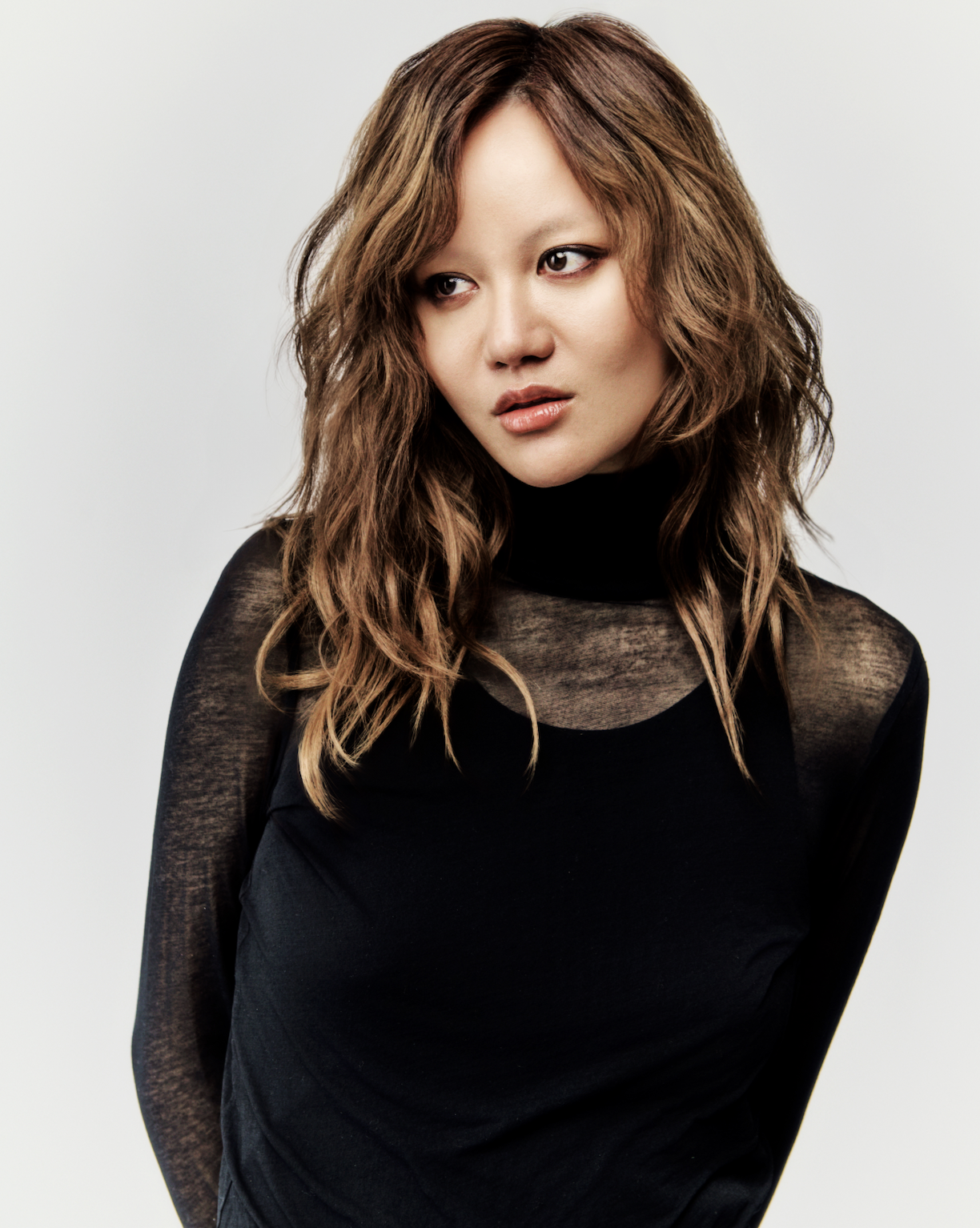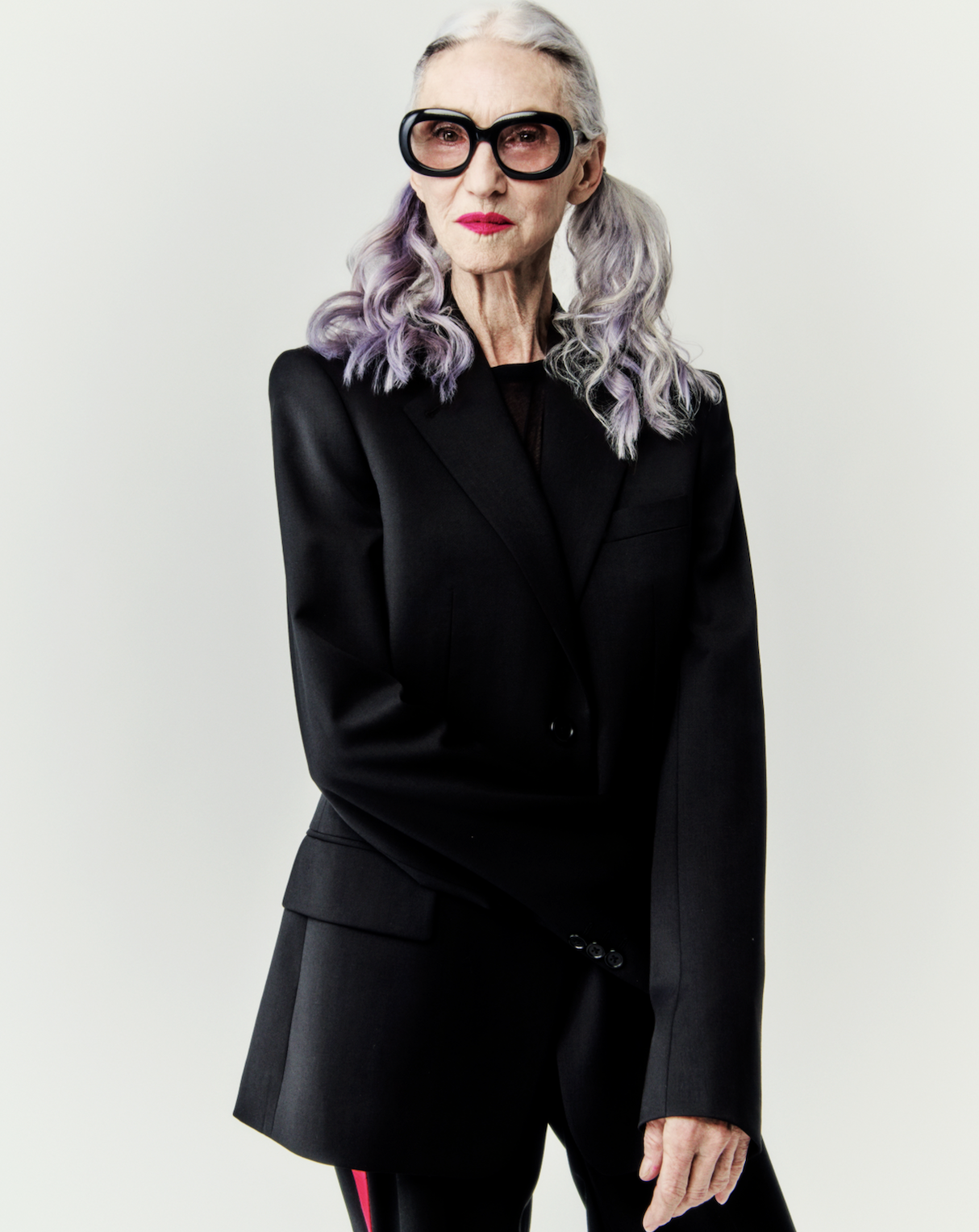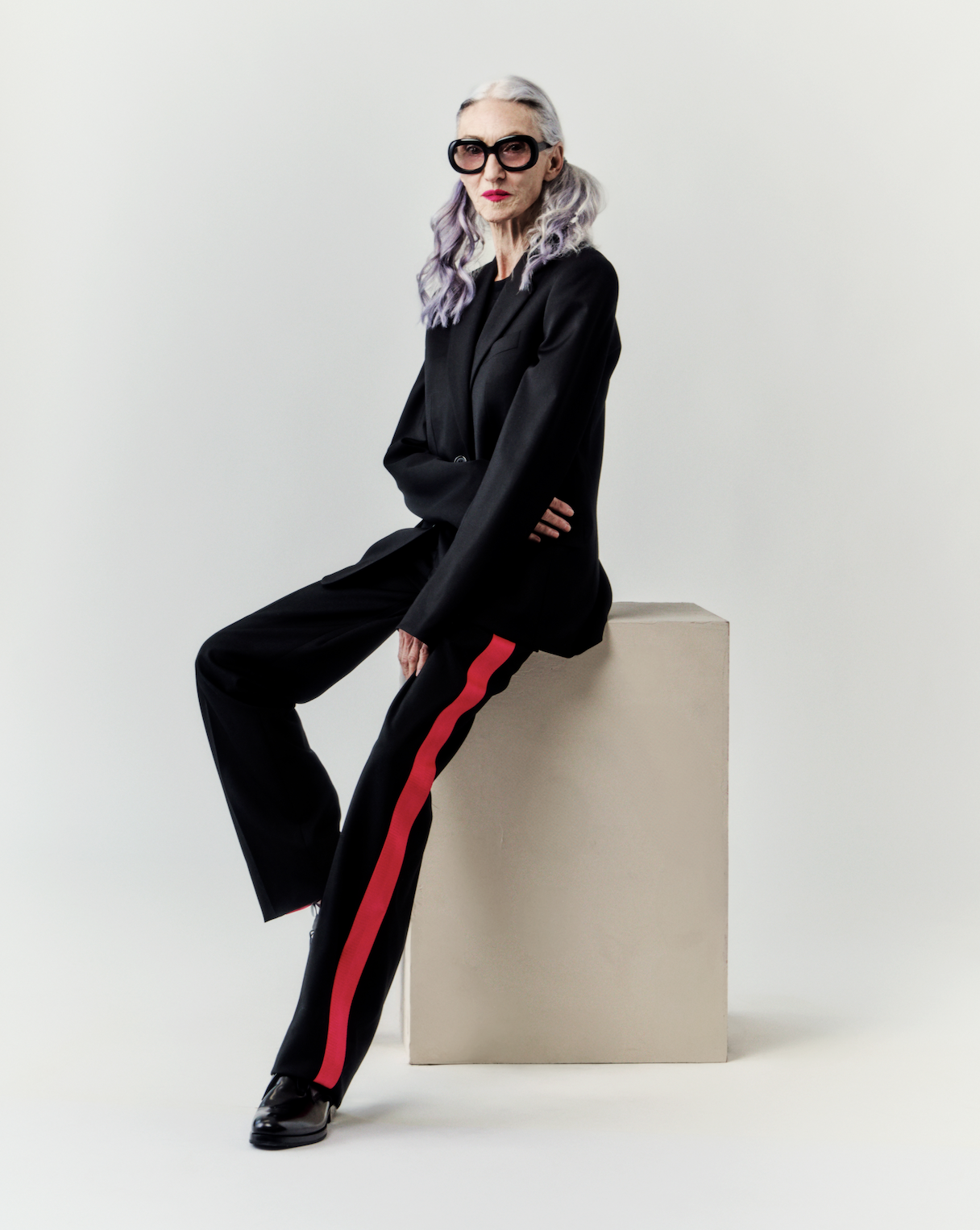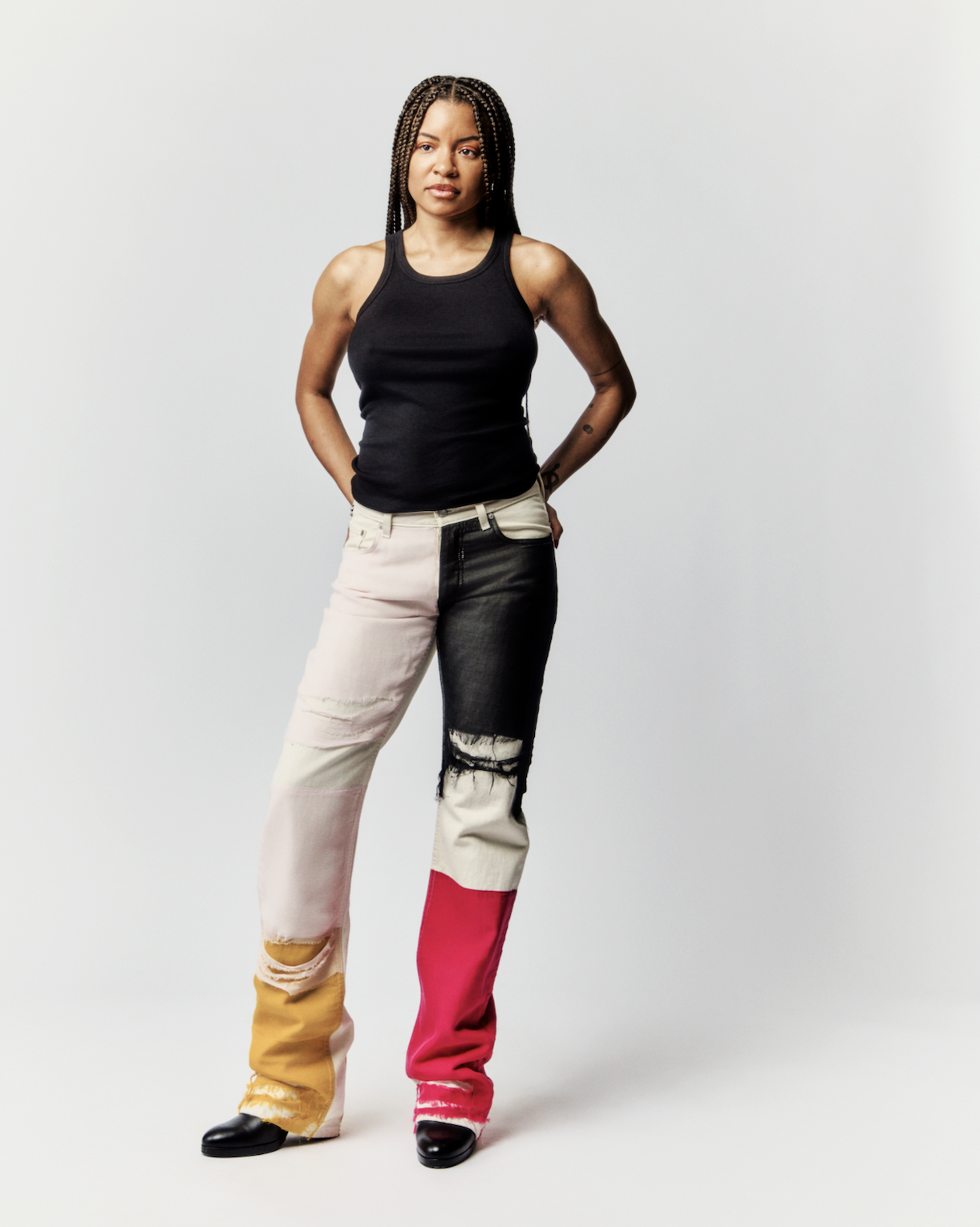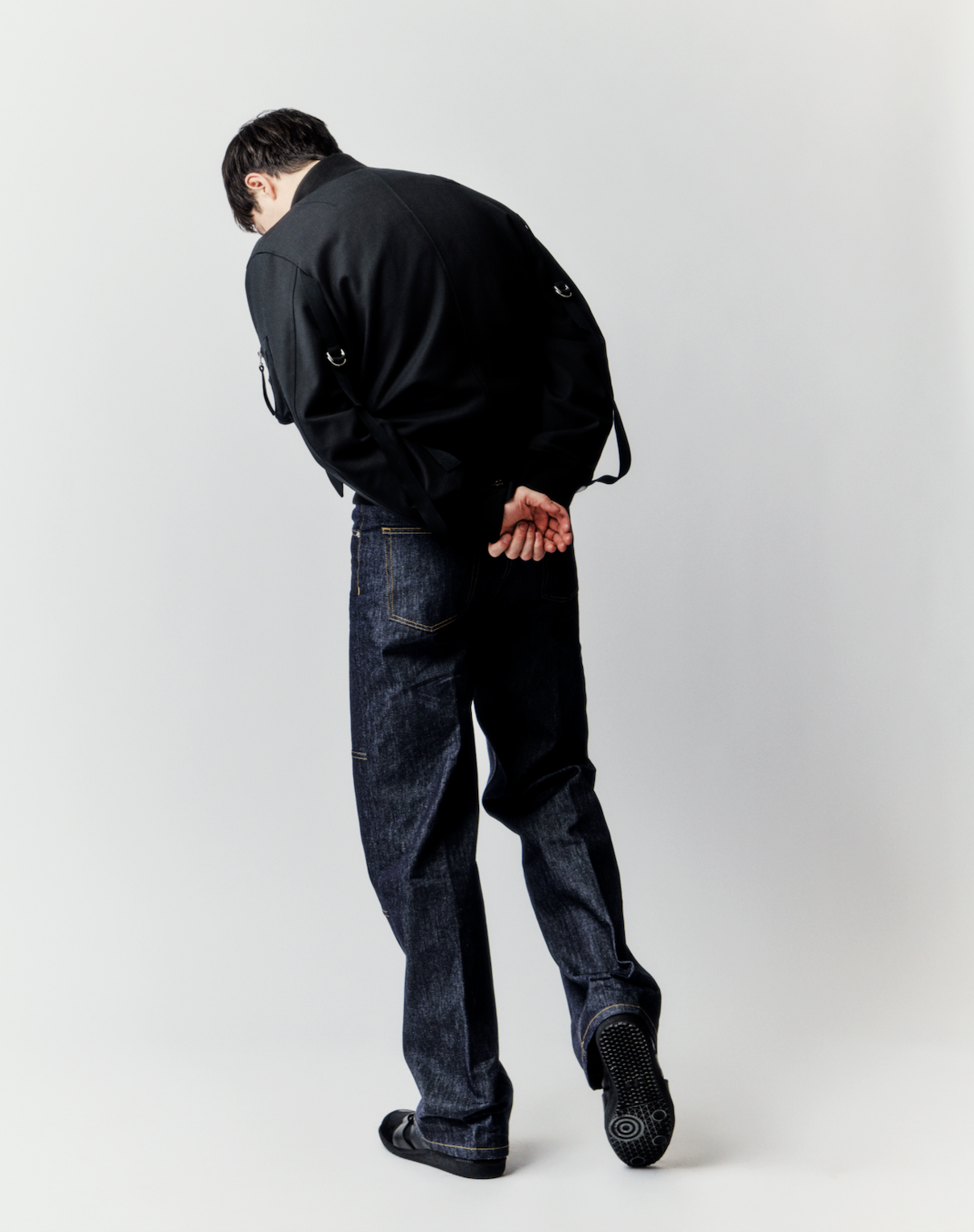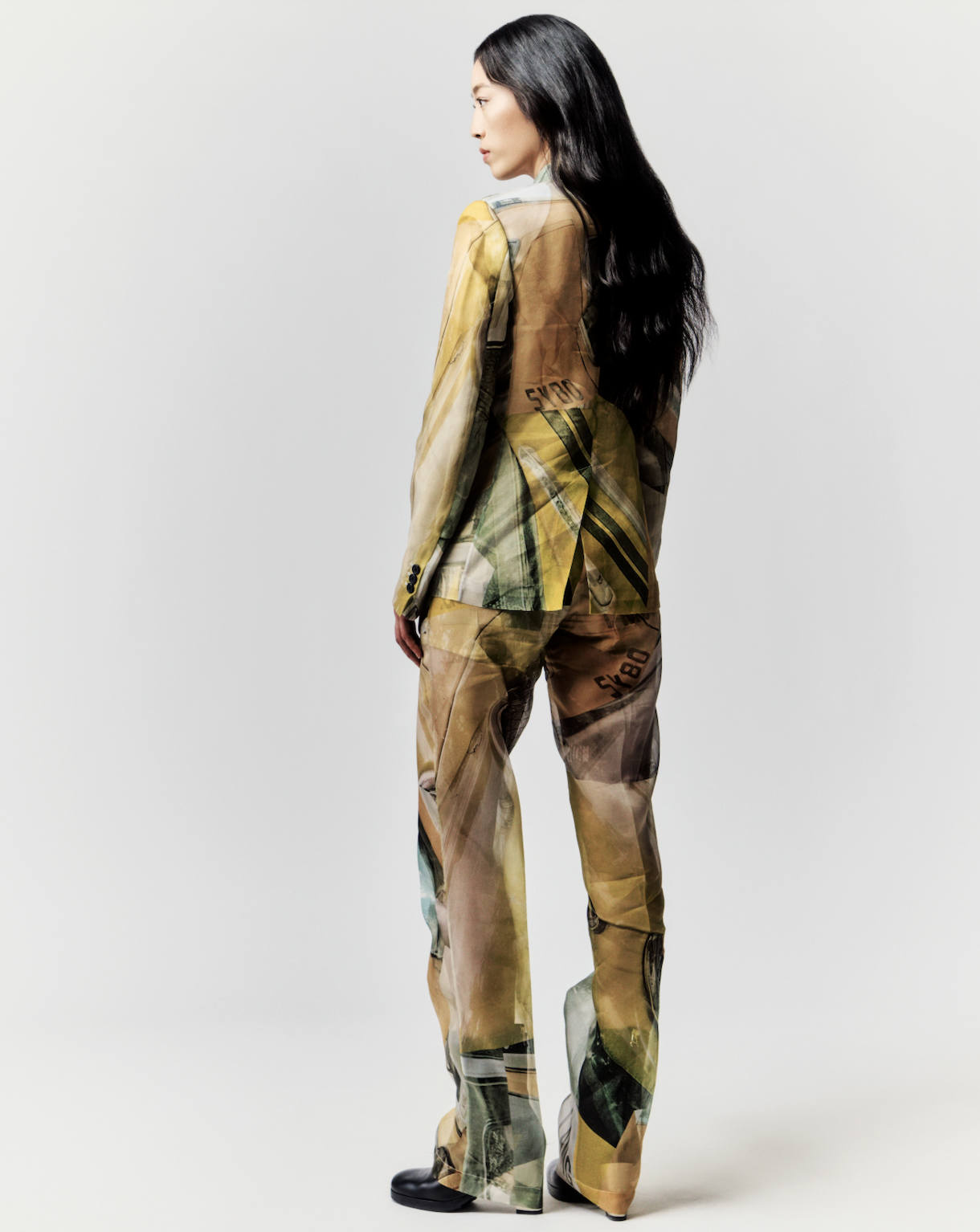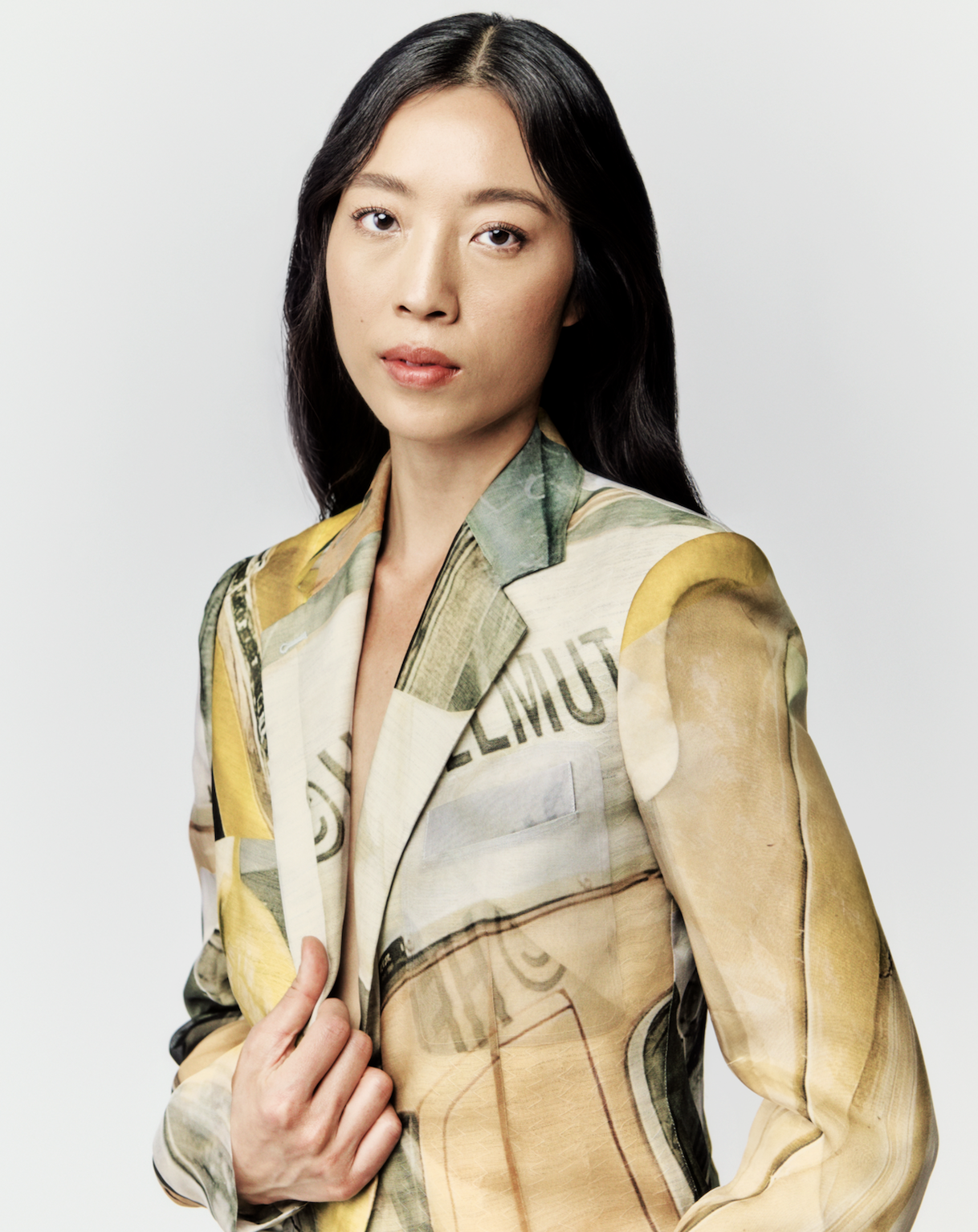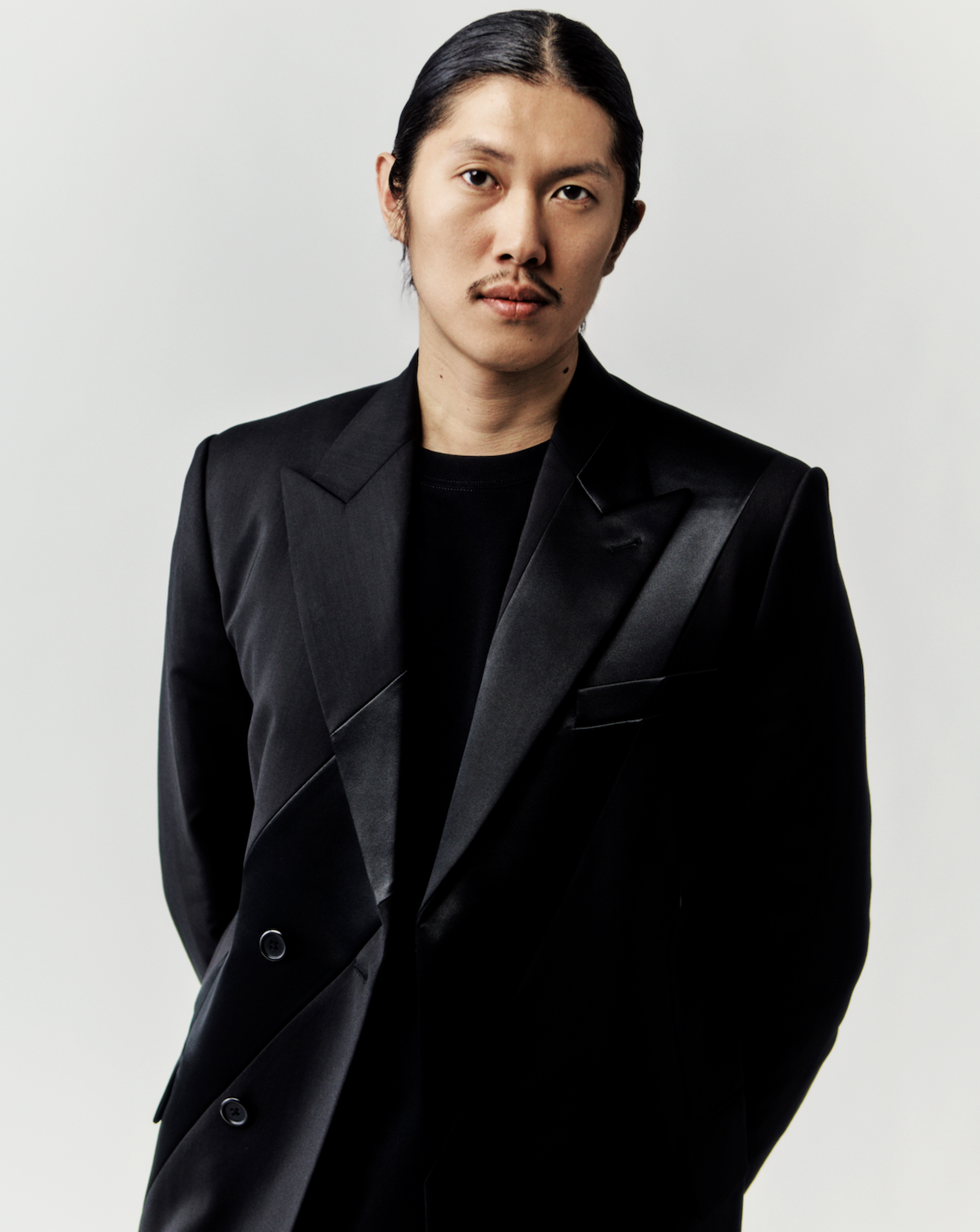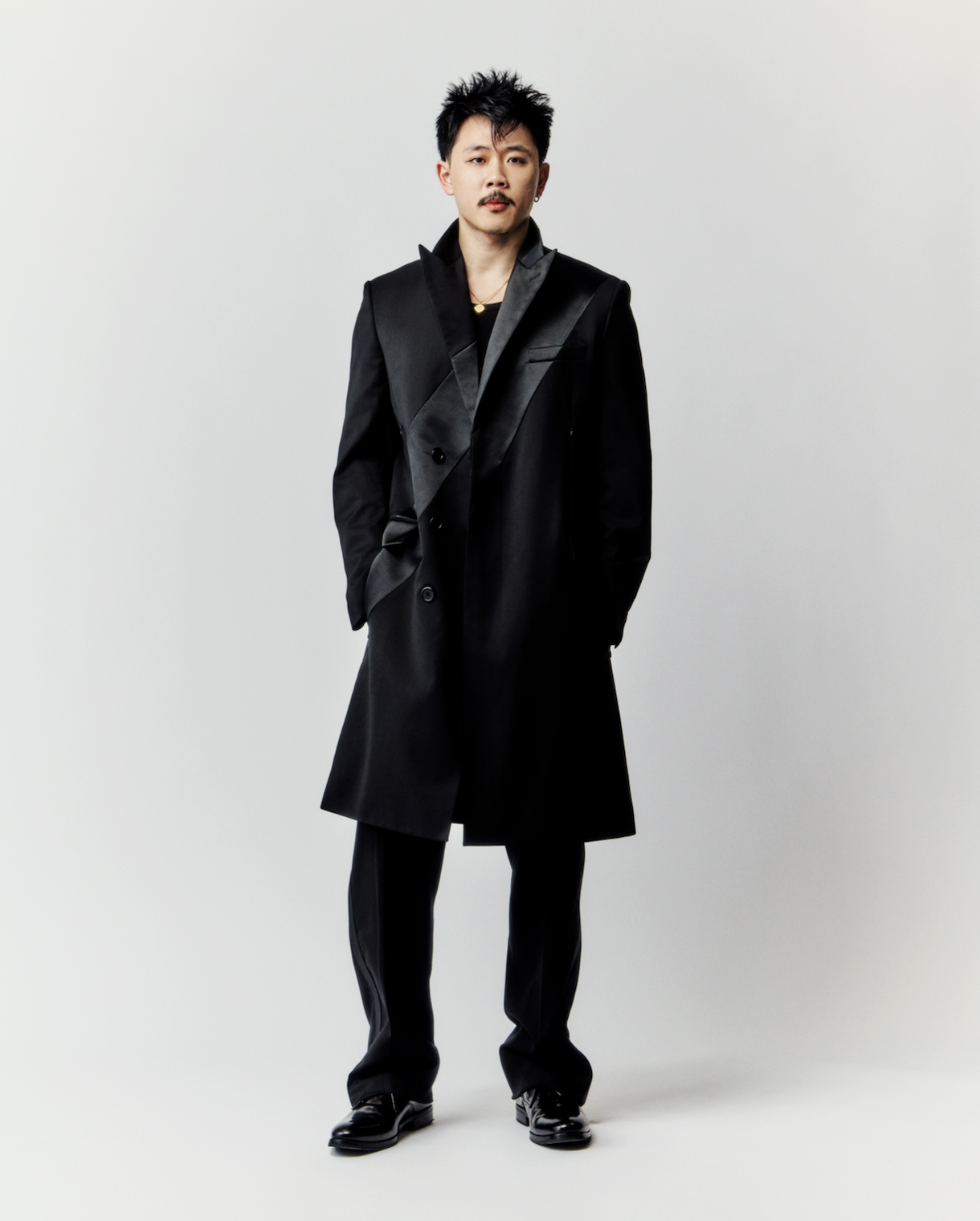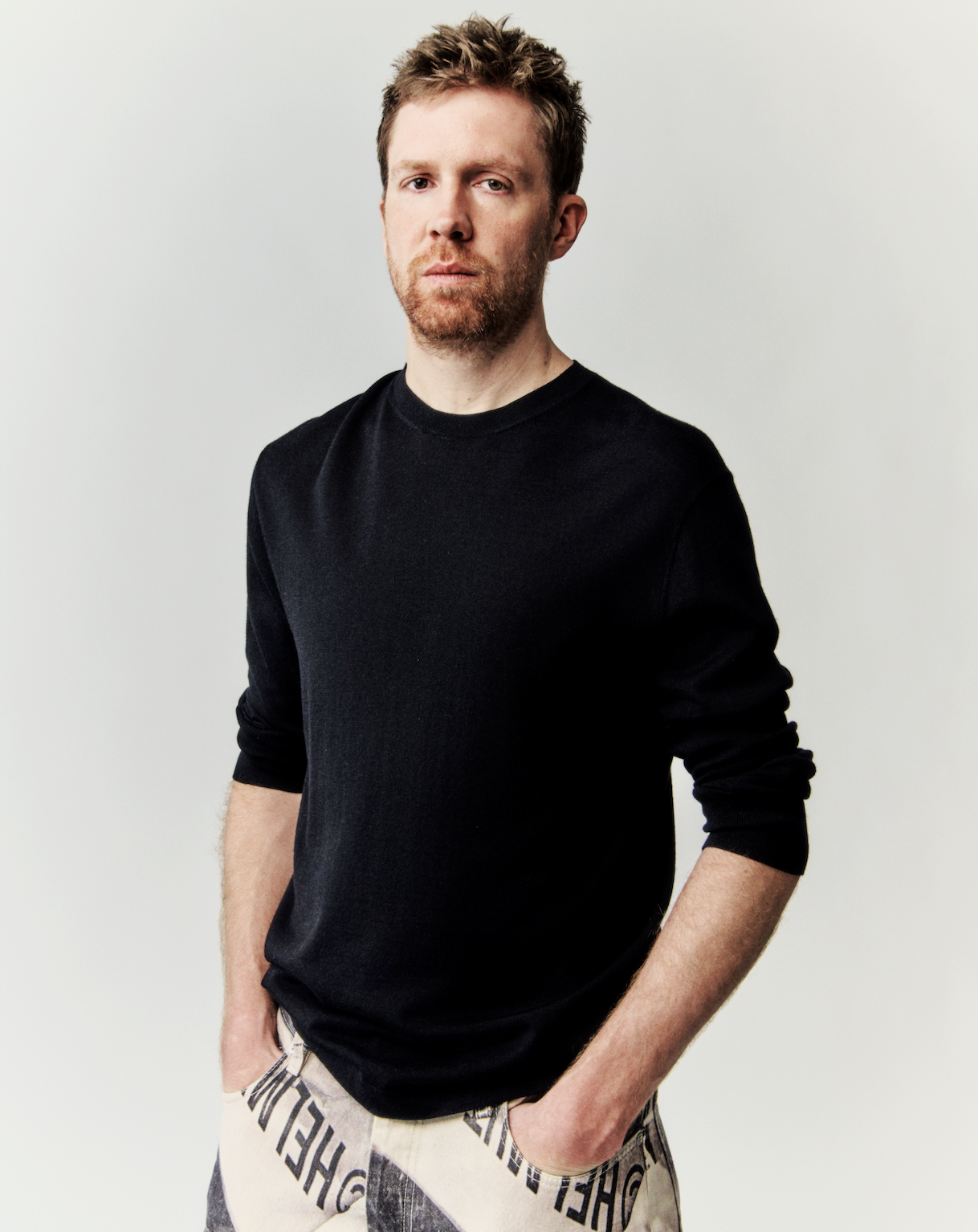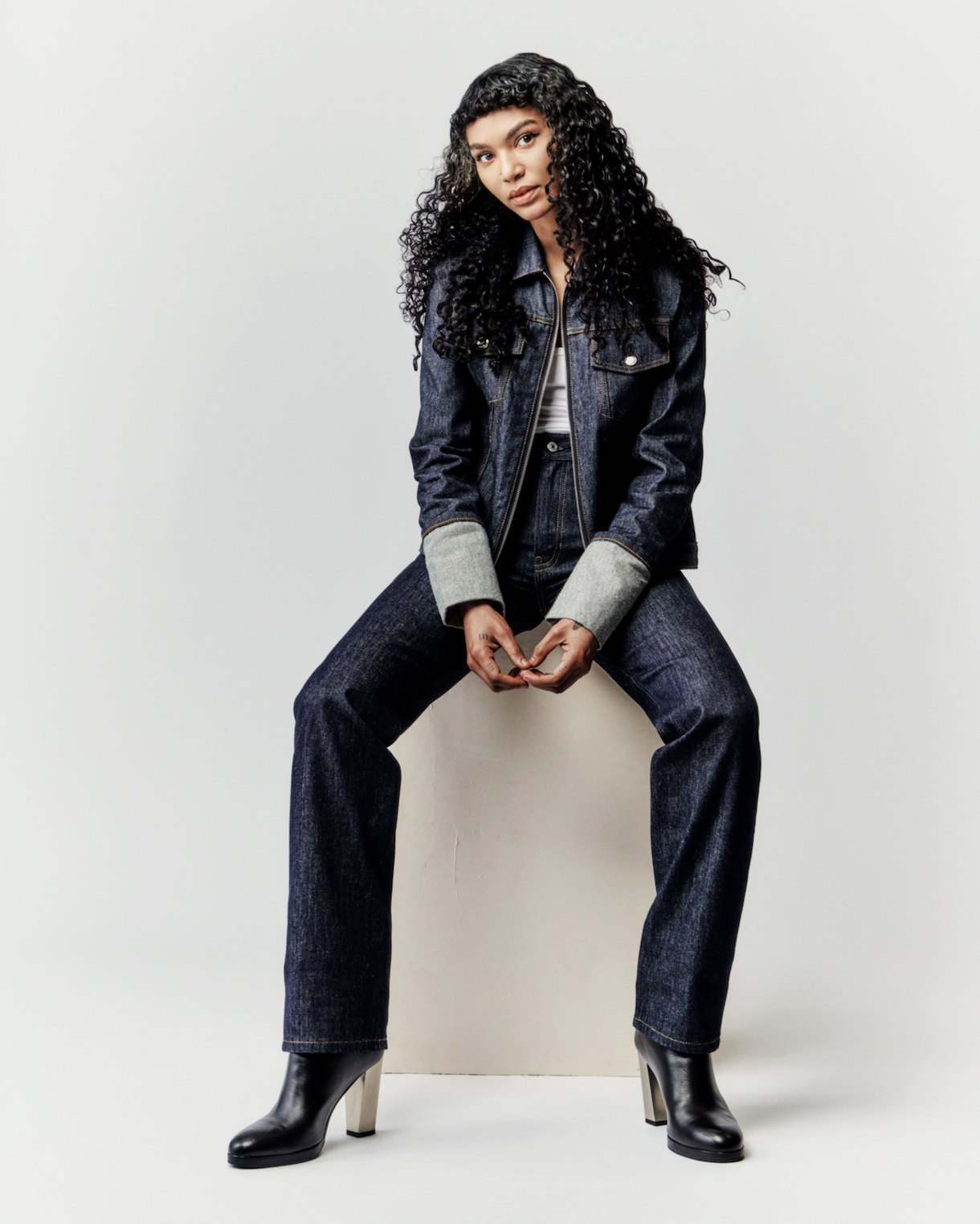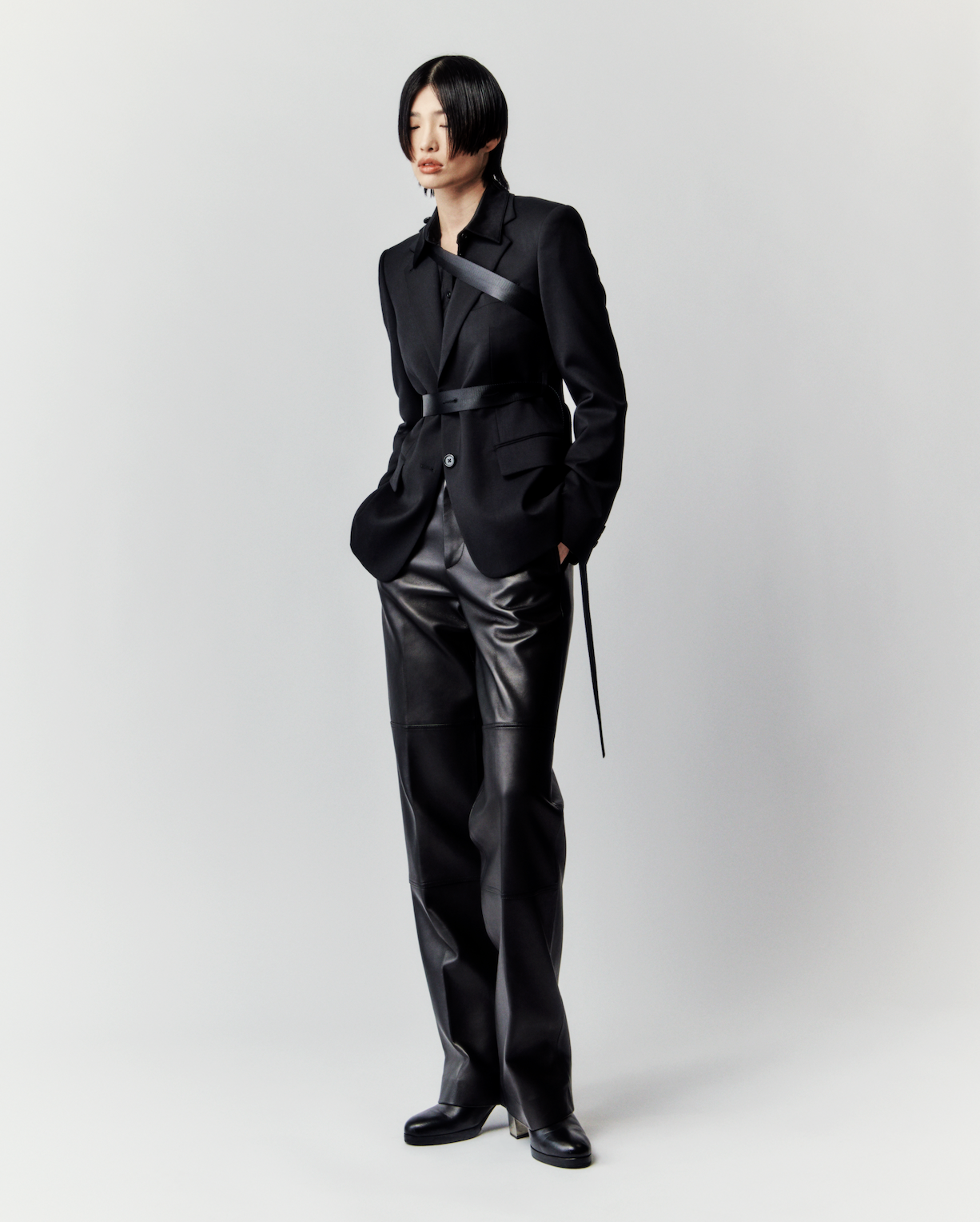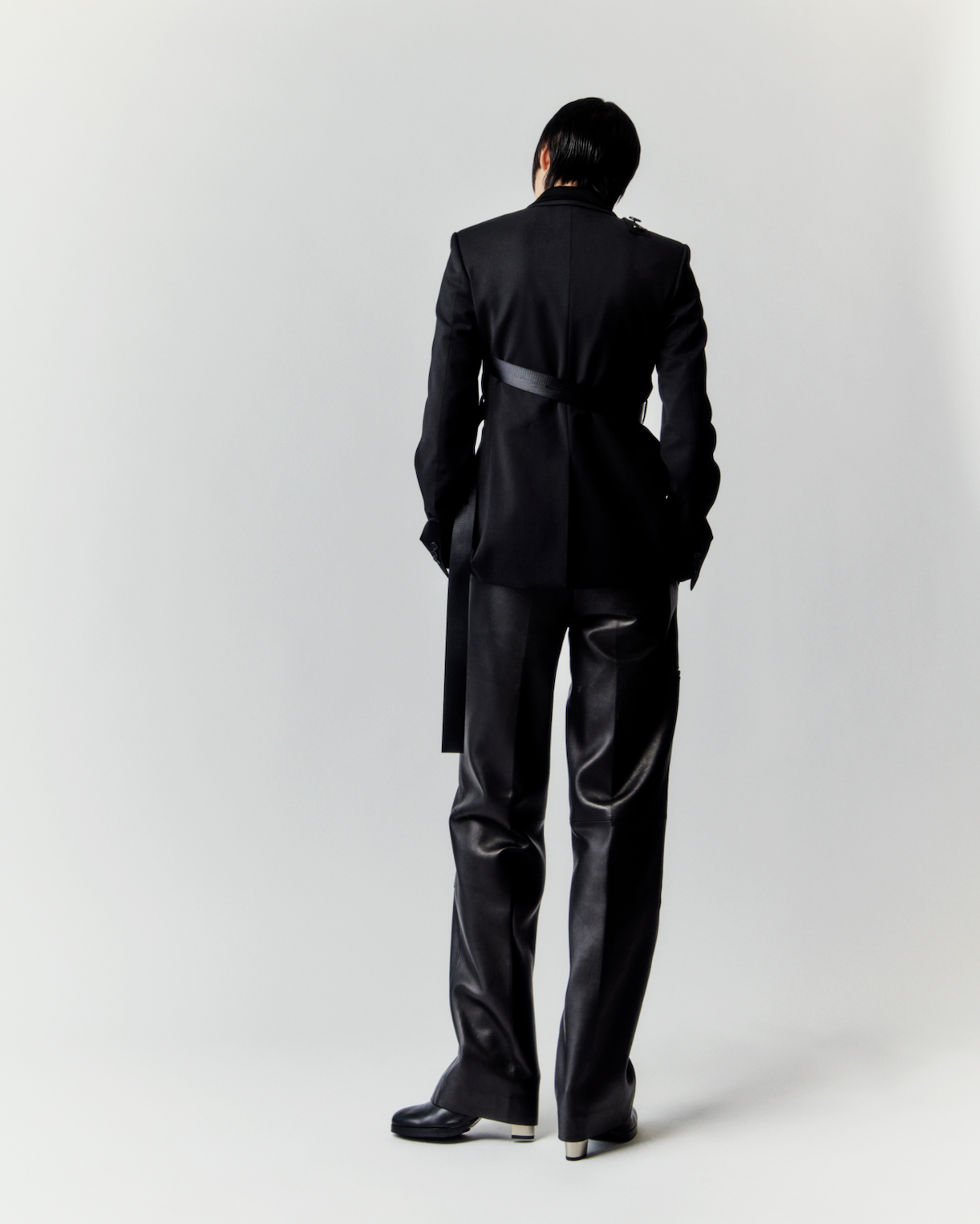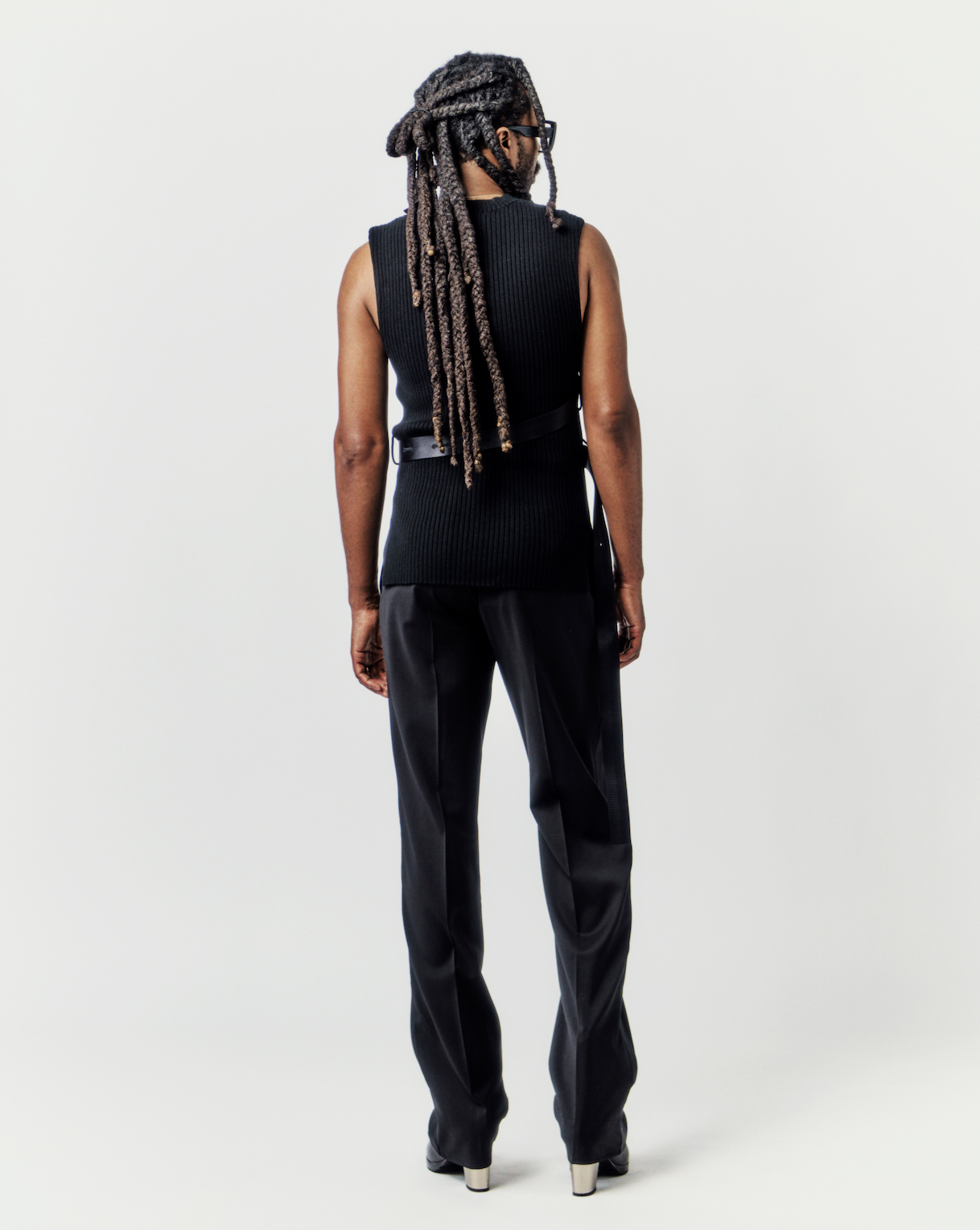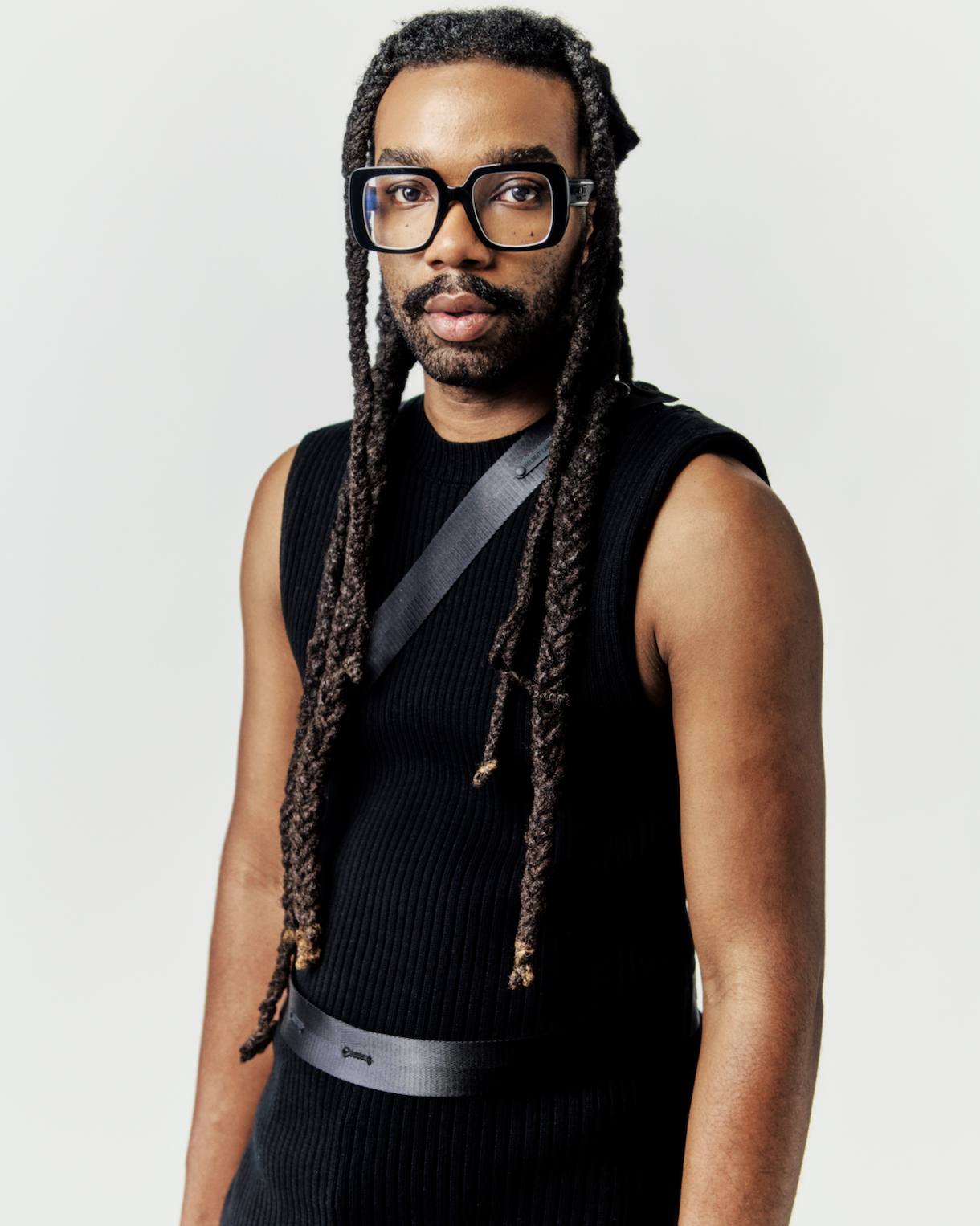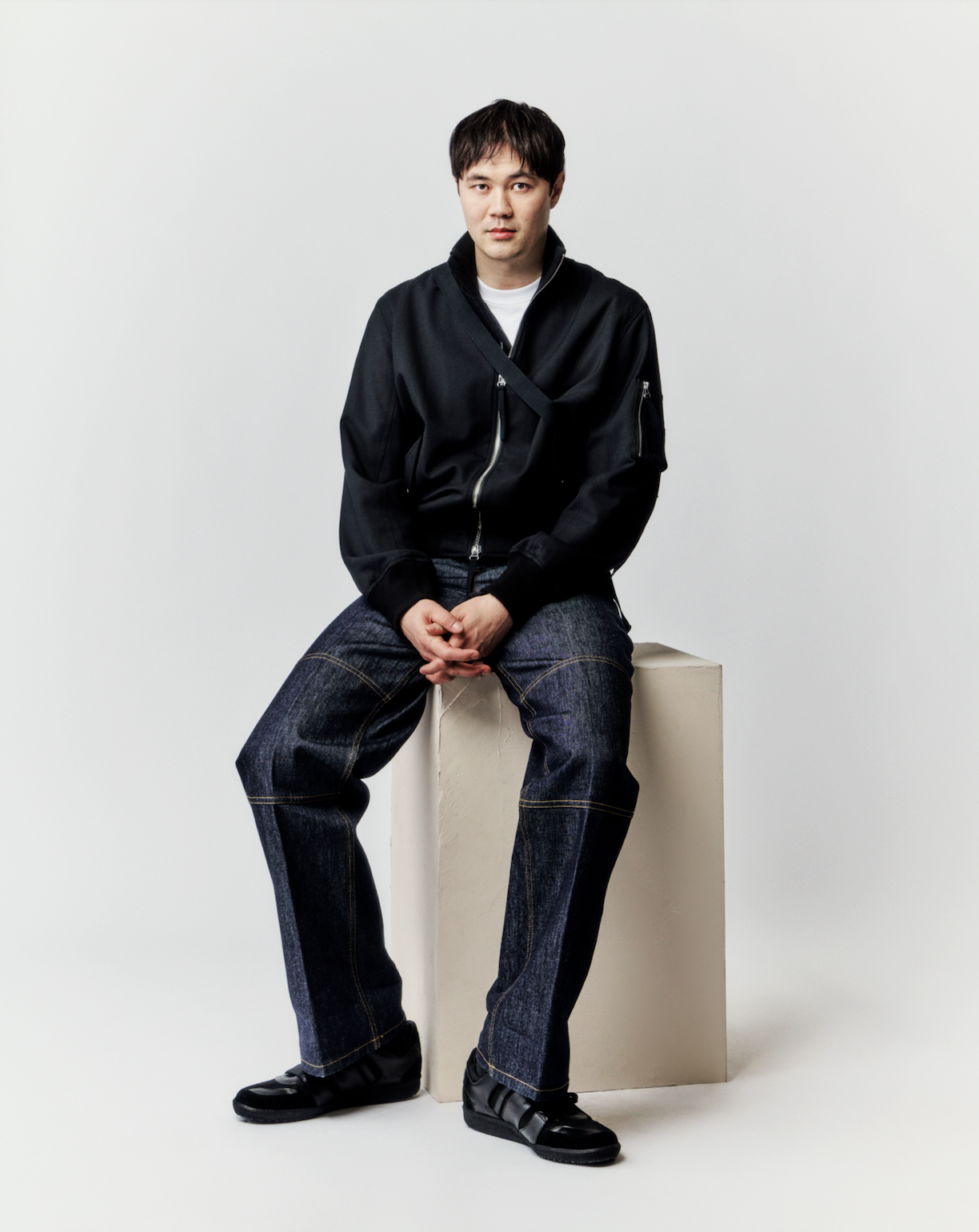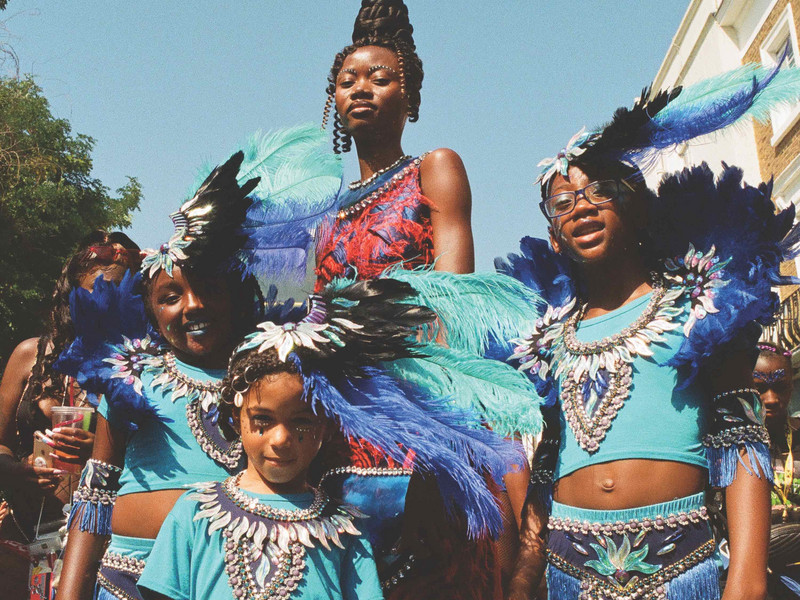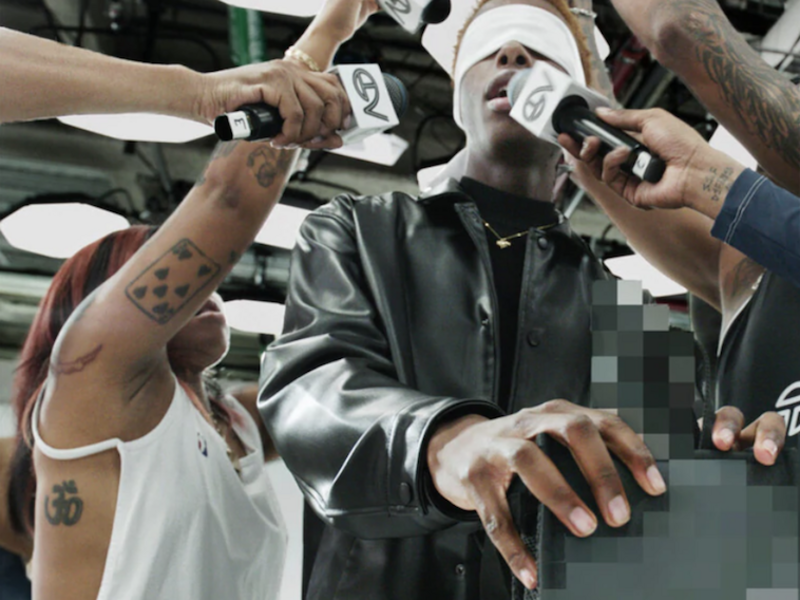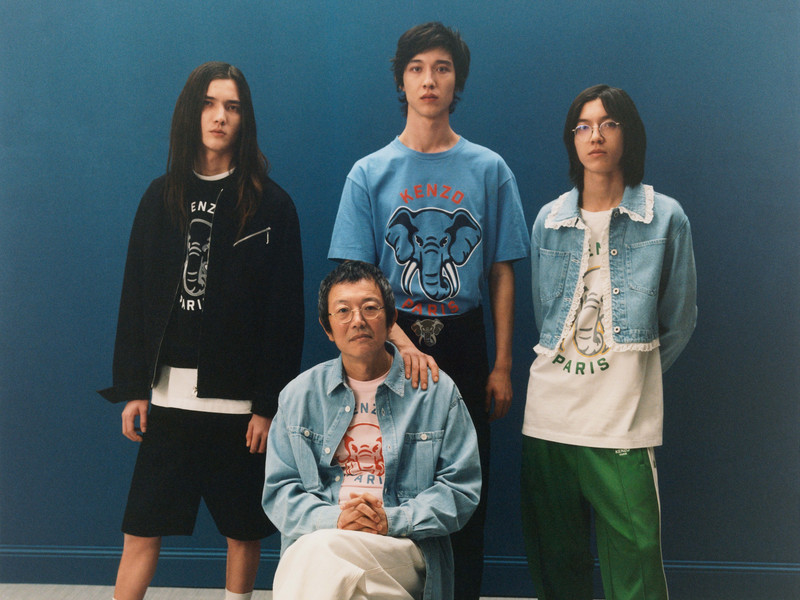Playing dress-up with buyer, stylist, and model Gia Seo
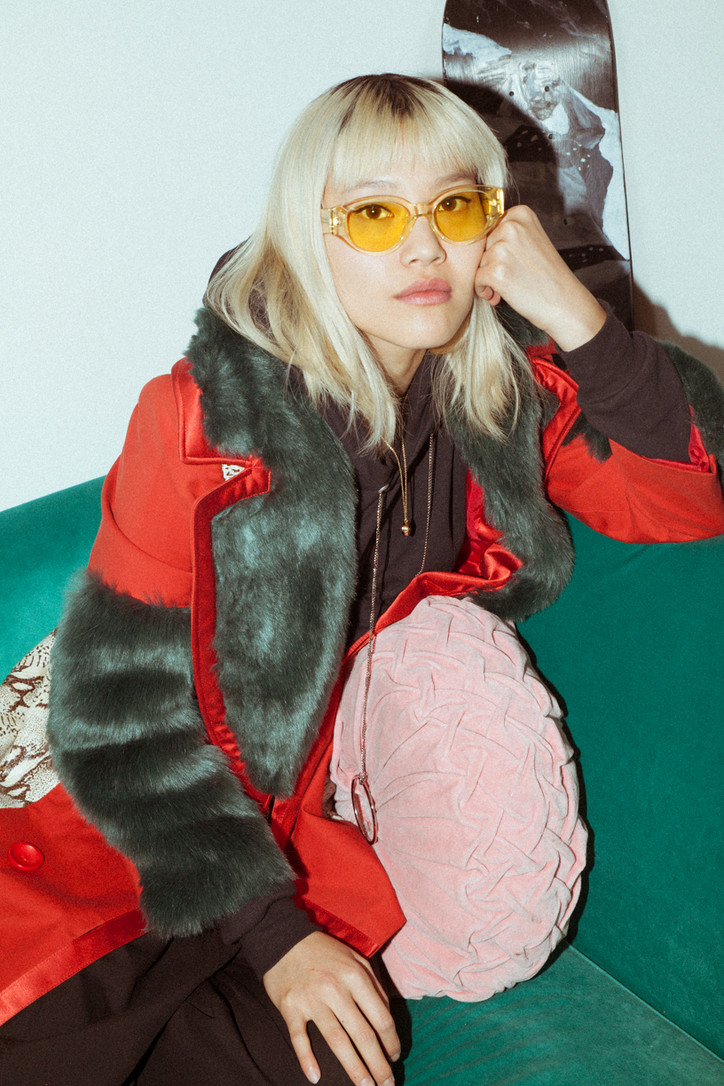
Did you originally get into fashion back in Alaska?
No. I didn’t know what fashion or style was in Alaska. I mean, the way I styled myself in Alaska was very practical, because living in -70 below wind chill you have to understand your climate change but still try to understand what was “in” at the moment, which for us growing up in Alaska were “Bunny Boots.” Do you have that phrase here? They're these really thick rubber boots that weigh, like, 15 pounds that you trudge through the snow with. I’m sure if you like snowboard or ski or anything like that you’ll know what they are.
So it was Bunny Boots, the new color of the L.L.Bean sweater that came out, and the new North Face jacket that came out. My saving grace growing up in Alaska was my mother—she had this huge archive of what you would consider vintage luxury now: old Comme Des Garcons, Vivienne Westwood, Chanel, Prada. So for me, that was kind of my introduction to fashion. But even then, it’s different when you approach luxury that’s vintage especially if it’s from your mom’s closet. You don’t understand the history and you don’t understand the quality, so I would say I didn’t really know what fashion was until I moved here for university when I was 18.
You made such a big change. How is it different here in terms of daily lifestyle?
That’s really hard to say because I was quite young growing up in Alaska, so it was really just about school and biking with your friends, going to the corner grocery store, sneaking in to see R-rated movies—that kind of thing. So I think that comparison is difficult, but what I will say is that I definitely had a lot more time in Alaska to just think. Here, I feel like I have five minutes to think about everything before I lose the chance to do it.
Which university did you attend?
I went to NYU for Business of Entertainment and Film, with a minor in social studies and studio art.
That’s so interesting. Lately I’ve been talking to people who are very creative and went to NYU, and half of them say they studied mathematics or something really structural. I’m not surprised anymore if it’s something random.
For me, I really wanted to focus on film, but NYU is a very expensive school. When you’re 18, the logical step is like, “Alright, film is great, but am I really going to get a job in film? Let’s figure out your next step. What are you interested in?” For me, luckily, it was business.
And obviously when I was 18, I was like, “I fucking hate this. Why am I doing buisness?” I live in New York, I should be exploring my last teenage years. But now that I have graduated, I’m like “Thank fucking God I studied business, man,” because that’s what people are looking for on my resume. It’s great that I have a creative background, but they want to know that I understand the business side and I think that it’s just because our industry is so competitive now. All of these kids coming up are getting younger and younger, and they all have these insane media backgrounds. They’re like, “Oh yeah, I know all of Adobe Suite—like, Photoshop.” They don’t even know what program they use in film anymore (Adobe Premiere). So, I feel like when their resumes are getting stacked now, it’s harder for them to get a job.
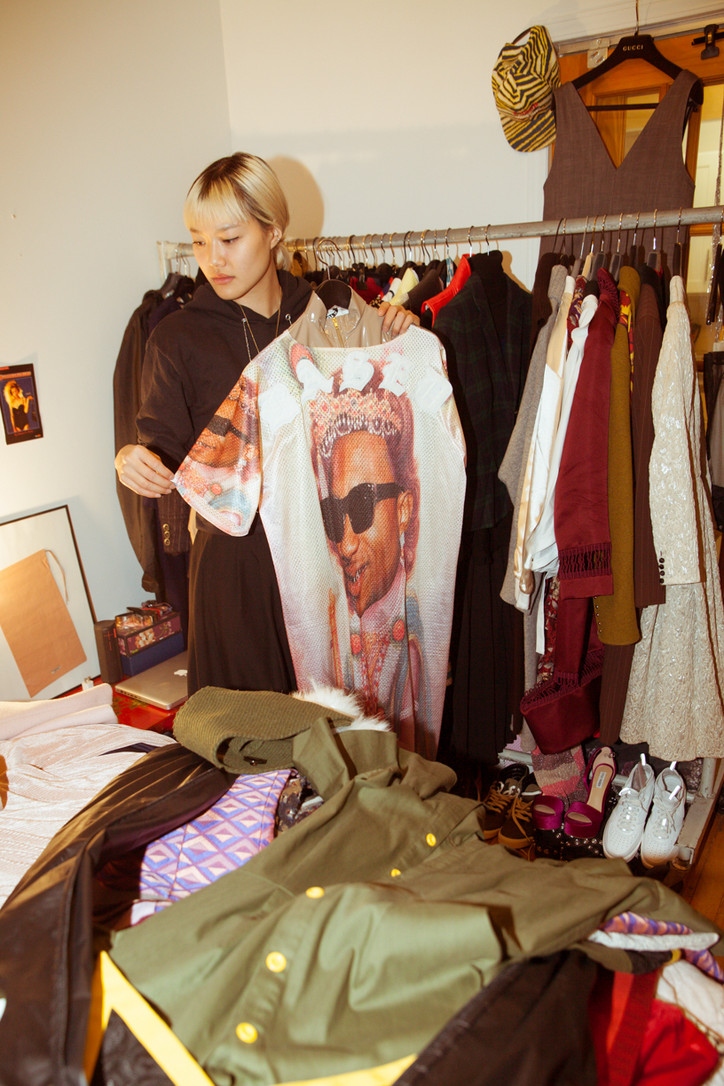
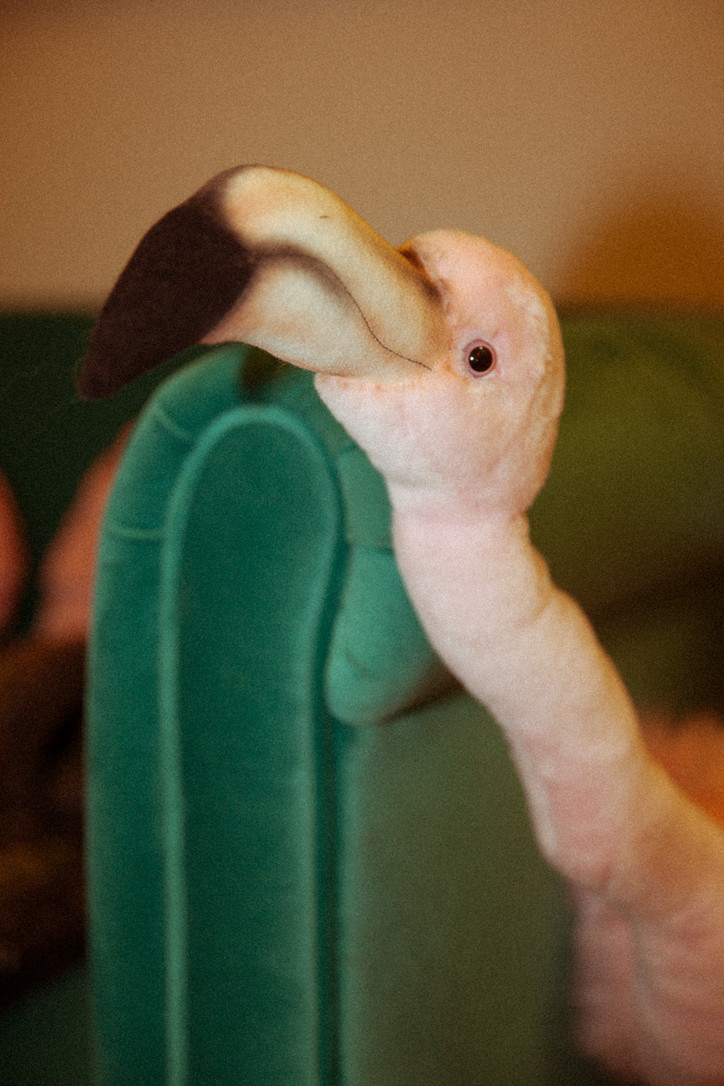
Did your experience in school help you with what you do now? Or did you kind of figure things out on your own?
That’s a tough question. I don’t want to phrase it in a way where it sounds like education isn’t important, but at the same time I think the experience you have outside of school really helps you become who you are today. So for me, the reason why education was very important was A) I got to choose what I learned, but B) It instilled a work ethic in me that I don’t necessarily see so much in my peers. Most of my friends didn’t go to school in New York and didn’t grow up in a fast paced environment, so when they moved to New York they were very overwhelmed. But for me, going to school in New York instilled this work ethic that helps me with my career now, if that make sense. It helped me adapt much quicker.
What do you do now?
I work as a full time buyer for a luxury company called The Webster, which is based out of Miami, but we have four stores and counting. I haven’t really been doing so much styling work, but sometimes I will pick up a freelance on the weekends. Most people think buying is very based in business and structure, but for me it’s creative because you have to understand the market and understand where all of these creative designers and individuals are pushing the market towards. That’s what you’re buying, so it goes hand in hand.
How do you like to research what designers are pushing?
Let’s say that you see the first three shows that open up New York Fashion Week—you kind of understand what trend your market is going to be in because you see the set up. You’re gonna see kind of the colors that all of the designers are picking this season, but for me what really helps is to look at all of the trends for castings. There are millions of people out there who are blogging all the time about what they expect and want to see in the industry. I think what has really been amazing in the past couple of years is that the industry is listening, you know? They’re no longer solely looking for very thin models. There’s more diversity now in terms of race, in terms of size, and in terms of the fact that brands like Chanel are no longer doing the heavily history-driven luxury type stuff. They did something at the Ritz, but the complete line up was all of these very young girls and boys that you haven’t really seen in the past.
Do you look at any bloggers in particular?
To be really honest—I hate to say this—but I don’t follow bloggers. I have a lot of friends who do blog, but I think that it’s a really contrived market. What used to be very innocent, with people blogging about the things that they were buying or the things they were really invested in that season, has turned into brands reaching out to you for special promotions once you’ve gained a certain amount of fame on Instagram. What I’ve noticed a lot in the blogging industry world and what I’ve heard a lot about is that it’s no longer about personal style. It’s more about what brands you are aligned with and what they can send to you to promote. So, for me personally, I don’t really follow bloggers. I do follow a lot of creative directors, though, because I think that they’re a much different influx of the market. I love Harley Weir, obviously, who is also a photographer in her own right. Yeah, that’s kind of the world I look at personally.
How has being a buyer affected what you purchase for yourself?
I hate to be that girl, but I do love shopping. But I think being a buyer has made me a much smarter and more of an investment shopper. I’m not buying things because I see it on the runway and I see that hundreds of people have it and it’s a “must have” item. What I’m looking for more are the styles that are coming back in season—can I get it vintage? Can I get it more as a special piece? I think I’m more invested in the history of where the brands and the clothing are coming from rather than what’s trendy now. I don’t really love the trend of the market. I should have maybe prefaced with that. But at the same time, it’s been interesting to kind of see designers who are making their own trends, whereas before I think the trends were kind of agreed upon before the shows went live.
What’s one accomplishment you’re particularly proud of?
Honestly, one accomplishment I’m proud of is how much of an individual I have become. I went to boarding school when I was 15, and I kind of pretty much grew up without any family members when I was 18 to 21, and here I am now at 25. I think that’s my biggest accomplishment—knowing that I’m still living in New York and I haven’t lost my mind. I have great friends, and I really love being in New York. It’s very stimulating.
Was the goal always to live in New York?
I honestly didn’t even think about New York until I was in high school. I went to a very academic sports-related high school. But it was there that I discovered that I don’t have to go to a state school, and I don’t even have to stay in Alaska. What caught my eye about NYU was the way they approach diversity. My high school was predominantly very aristocratic white. Here, you meet so many different types of people. You see so many different types of things.
I keep hearing you say diversity. What does diversity mean for you?
By diversity, I don’t mean that when talking about race, gender, or sexuality. It’s more “diversity” in the sense that there’s always so much going on at all times in New York. There’s always so many different kinds of people you can encounter, good and bad. I think it’s really the bad people who make you good.
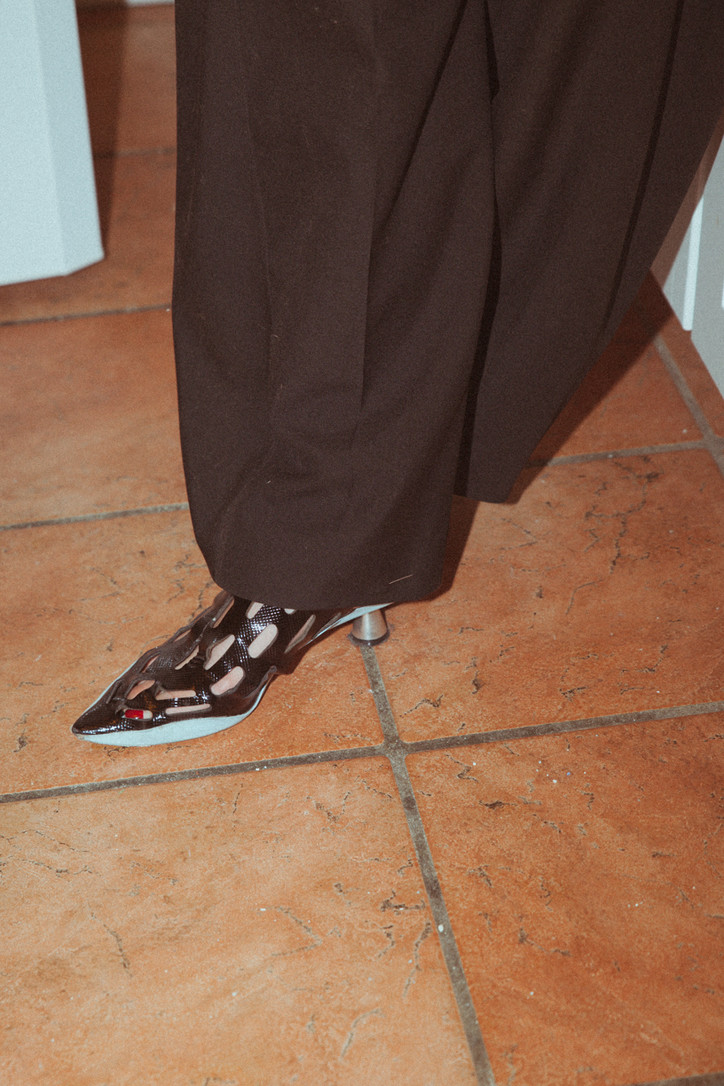
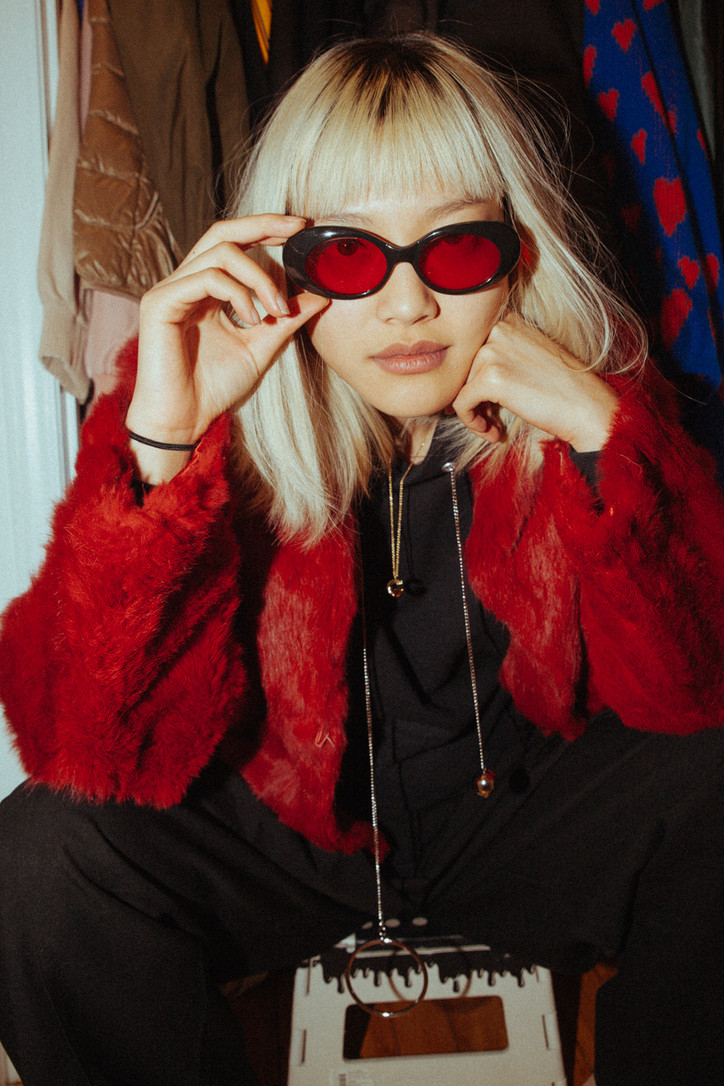
Were you always into fashion?
Not at all. Actually, I wanted to be a biochemist. When I originally applied to NYU, I got in for biochemistry, but I switched out a year in because I decided I am too young, man. I grew up in a super small town in Alaska, and people who are born and raised there also die there. It was funny because when my sister graduated and went to college, she was the first one in 25 years to leave the town and there was a newspaper article about her.
Woah. What was the population of the town?
Now it’s probably around 2000 people, but growing up it was less than 1000. There were, like, ten houses a block and five blocks.
That’s like a high school is some places.
Yeah, pretty much. My graduating class was 14 people.
Wow. Are they all still there?
Yeah, and married to the boy they were dating in high school with, like, 3 kids. They’re all in nursing, which is a wonderful life. No disrespect to that, but it just wasn’t my life. It wasn’t what I wanted.
Are you still connected to those people?
I’m connected in the sense that I really do try to stay in touch with them, but we talk about very different things. I don’t really indulge about my life in New York just because they wouldn’t understand it. They’ve never been here, and they’ve never even really been to any big cities. They wouldn’t understand the life I live here.
Do you see yourself staying in New York?
No. I do love New York, but what I hear is that once you hit four years here, everyone’s like, “Alright, what’s the next step here? I’m getting tired of New York. It’s the same people. It’s repetitive.” I would personally love to live in Berlin. I lived there for two years when I was in university, and I speak the language. When I was there, I absolutely loved the culture. I did not want to leave. It’s such an emerging art mecca. The problem is that I would really love to stay here so that I can be close to my family, but the luxury business doesn’t really exist anywhere in the United States. I love my job. I got very blessed with having this job, but at the same time, I love my family more than work. I wish I could figure out a way where I wouldn’t have to go abroad.
When you go back to Alaska, do you ever feel like New York has made you a certain kind of way?
I remember the first time I went back, I was like, “Oh my God, I have a full week here. I can’t wait to get back to New York.” Now when I go home, I’m like, “I only have a full week here. How can I extend it for another week so I can stay here?” I think you guys caught me in a weird stage of my life. I’m having growing pains.
Follow Gia on Instagram.
